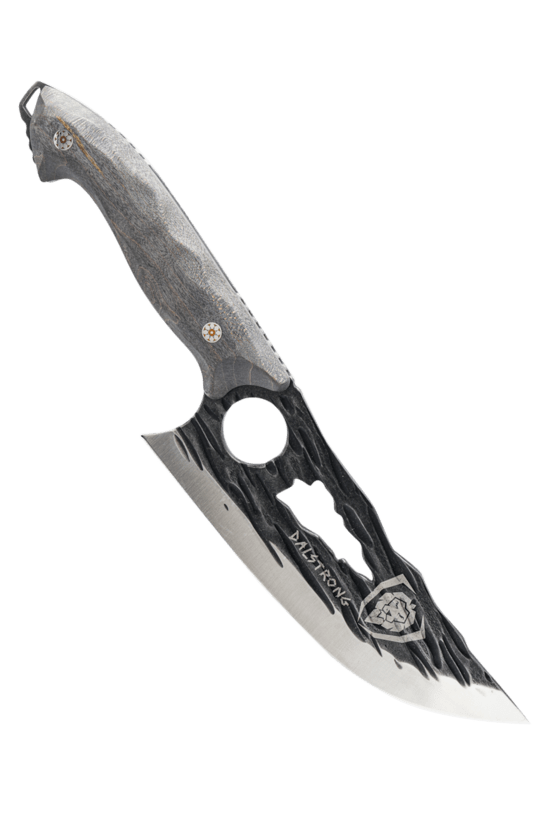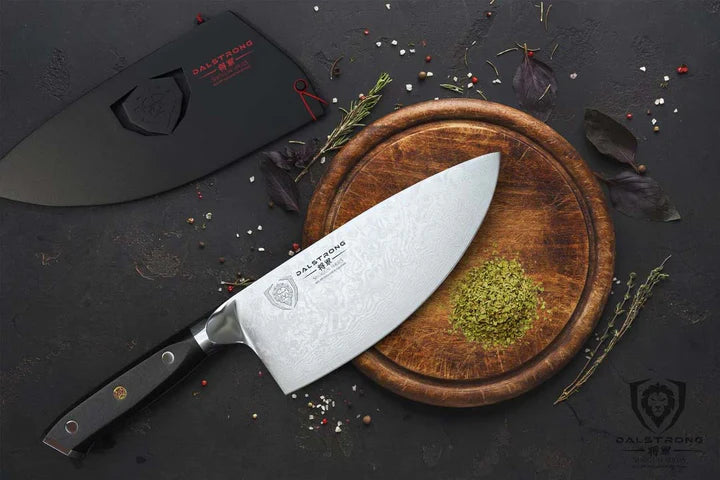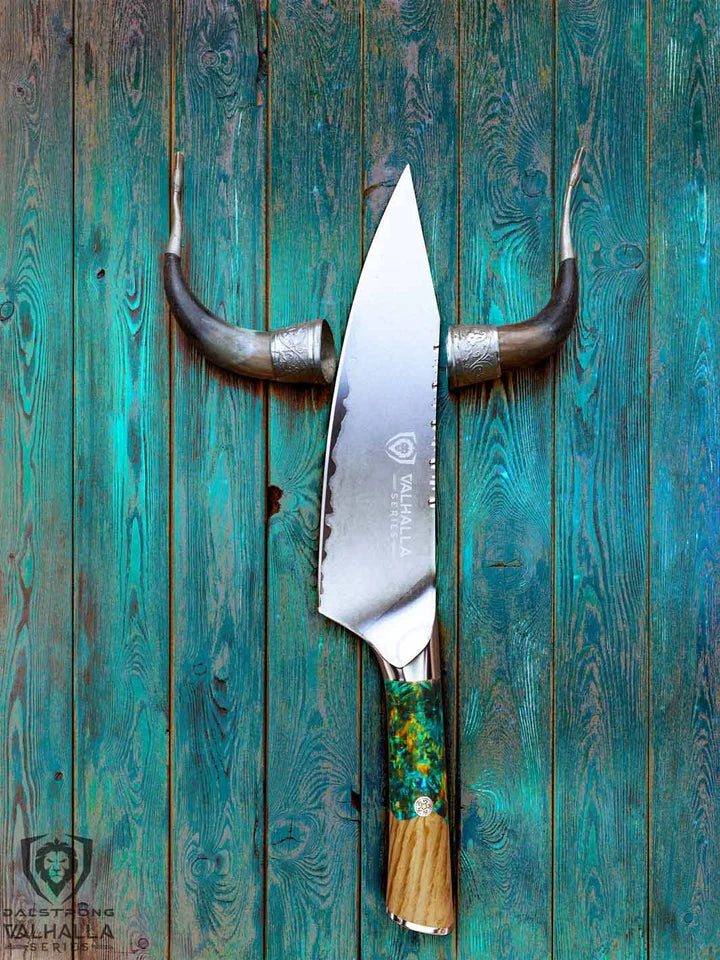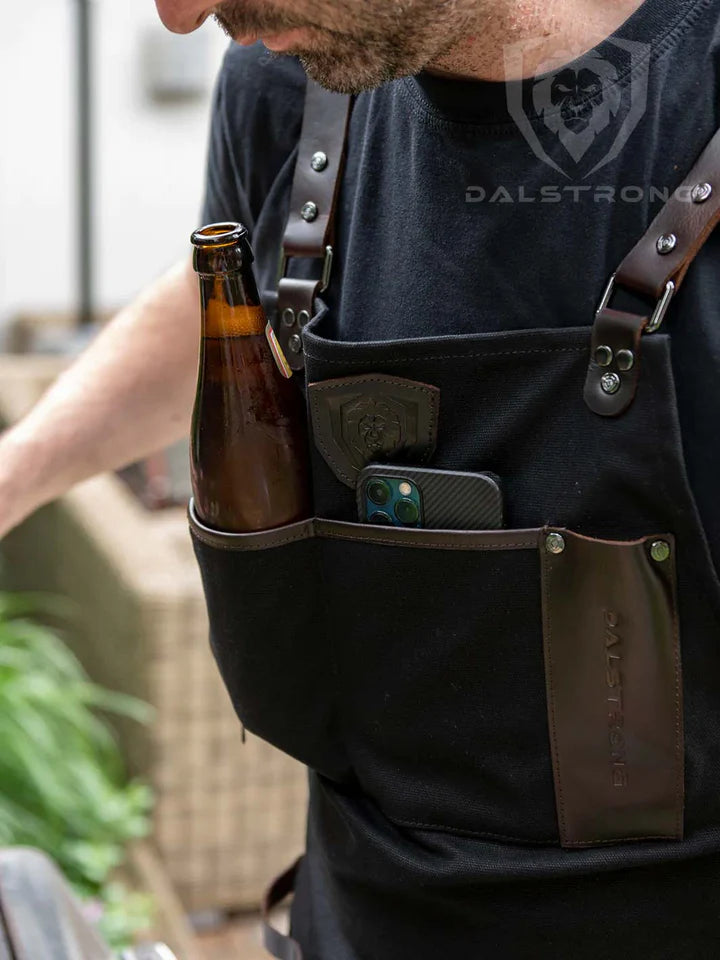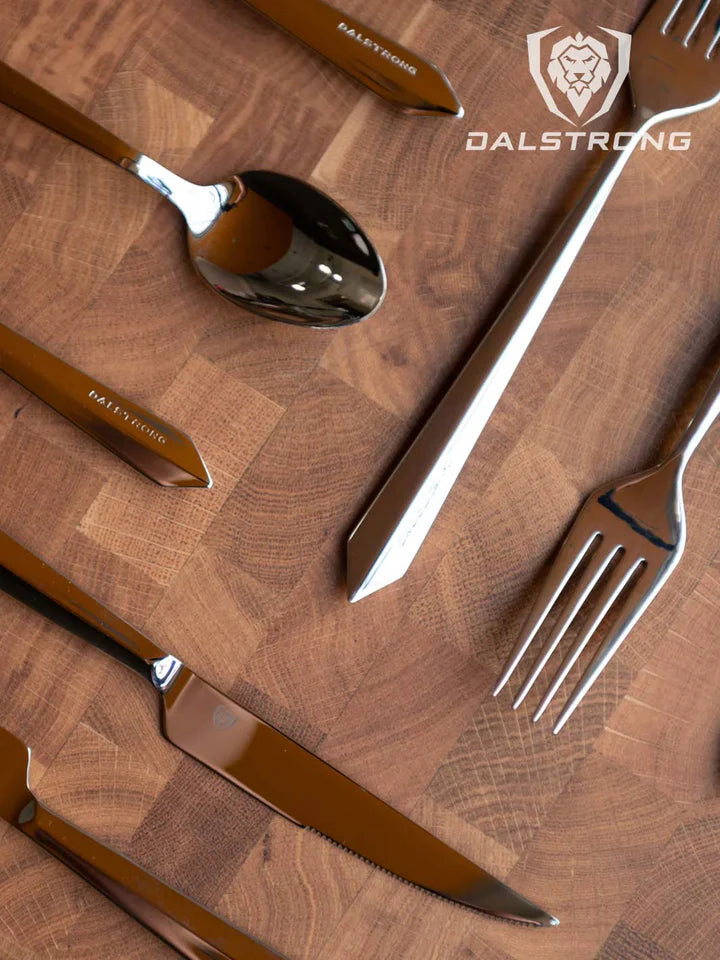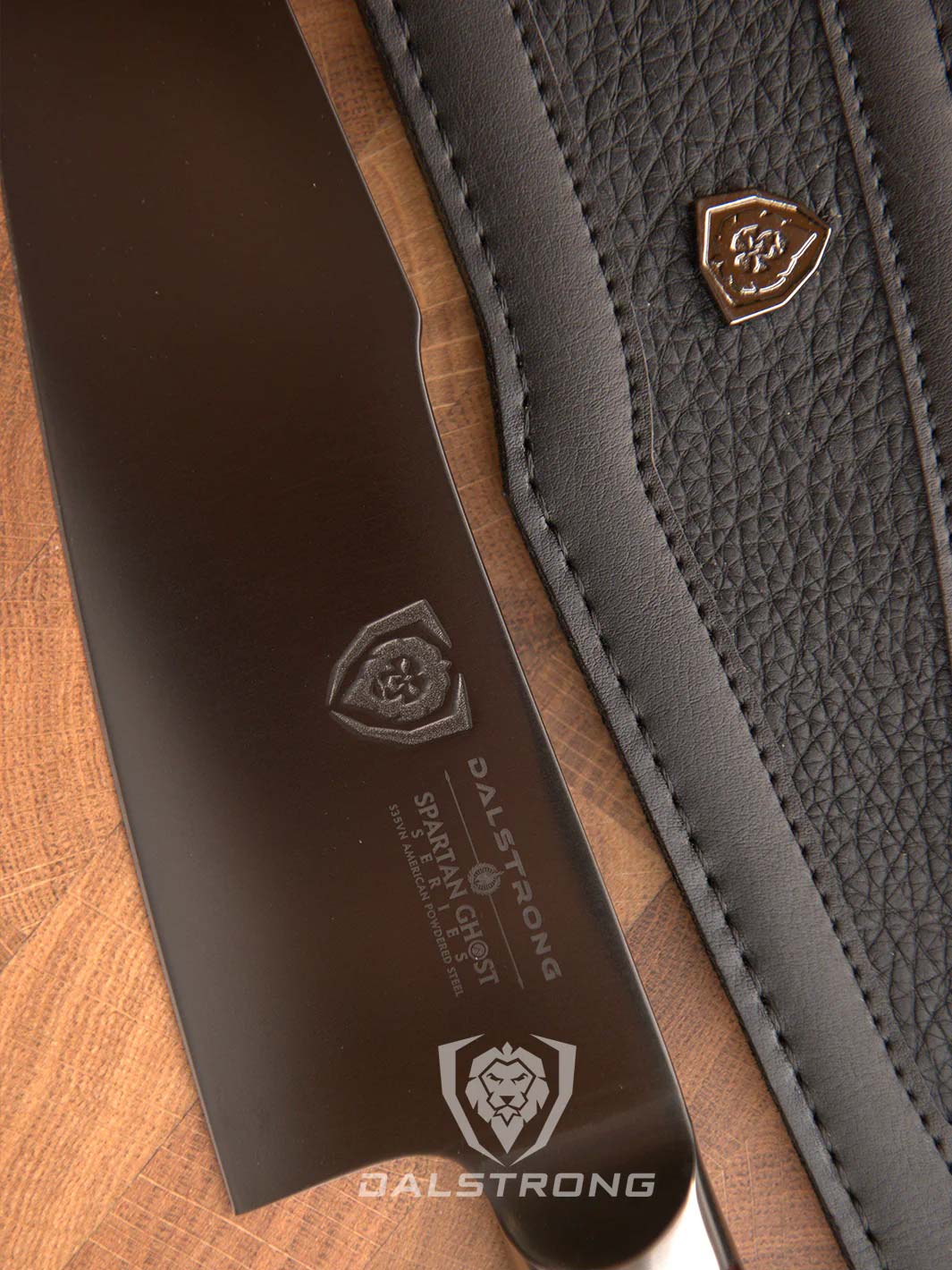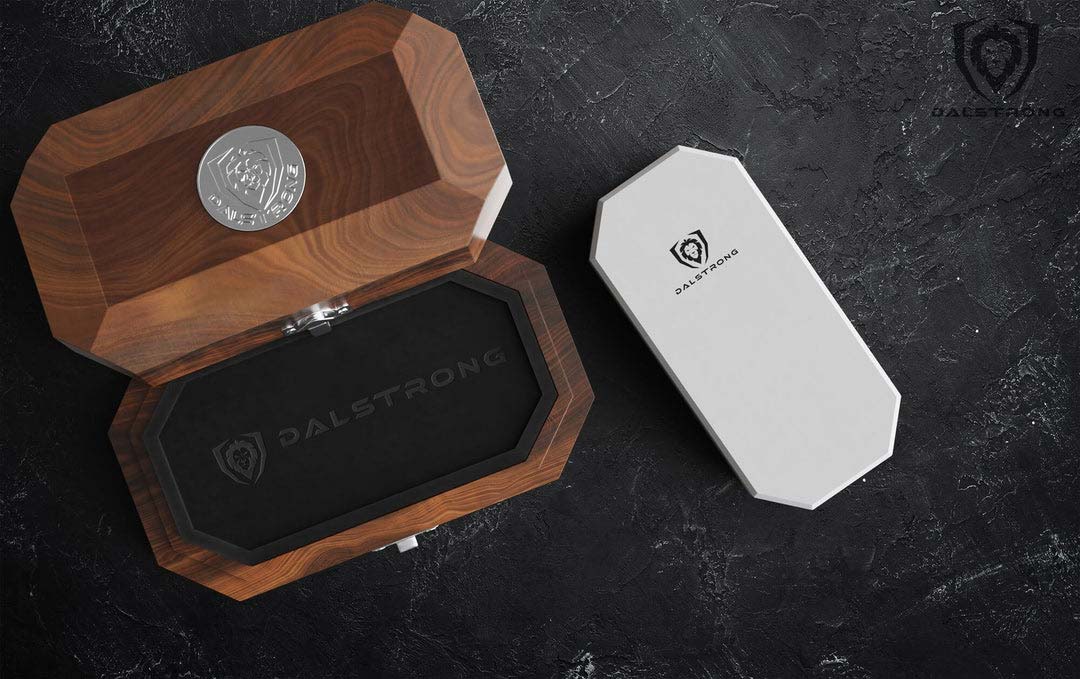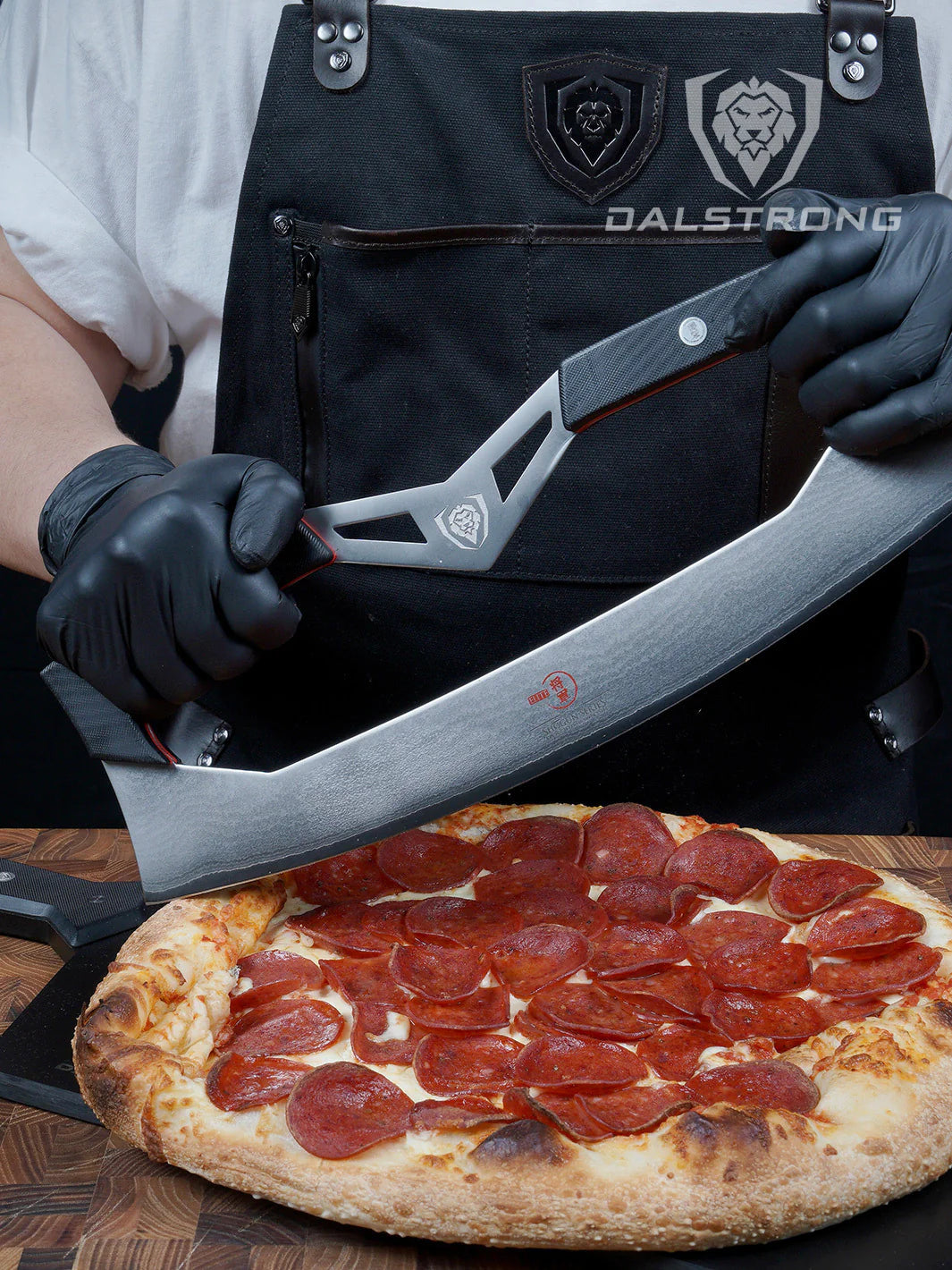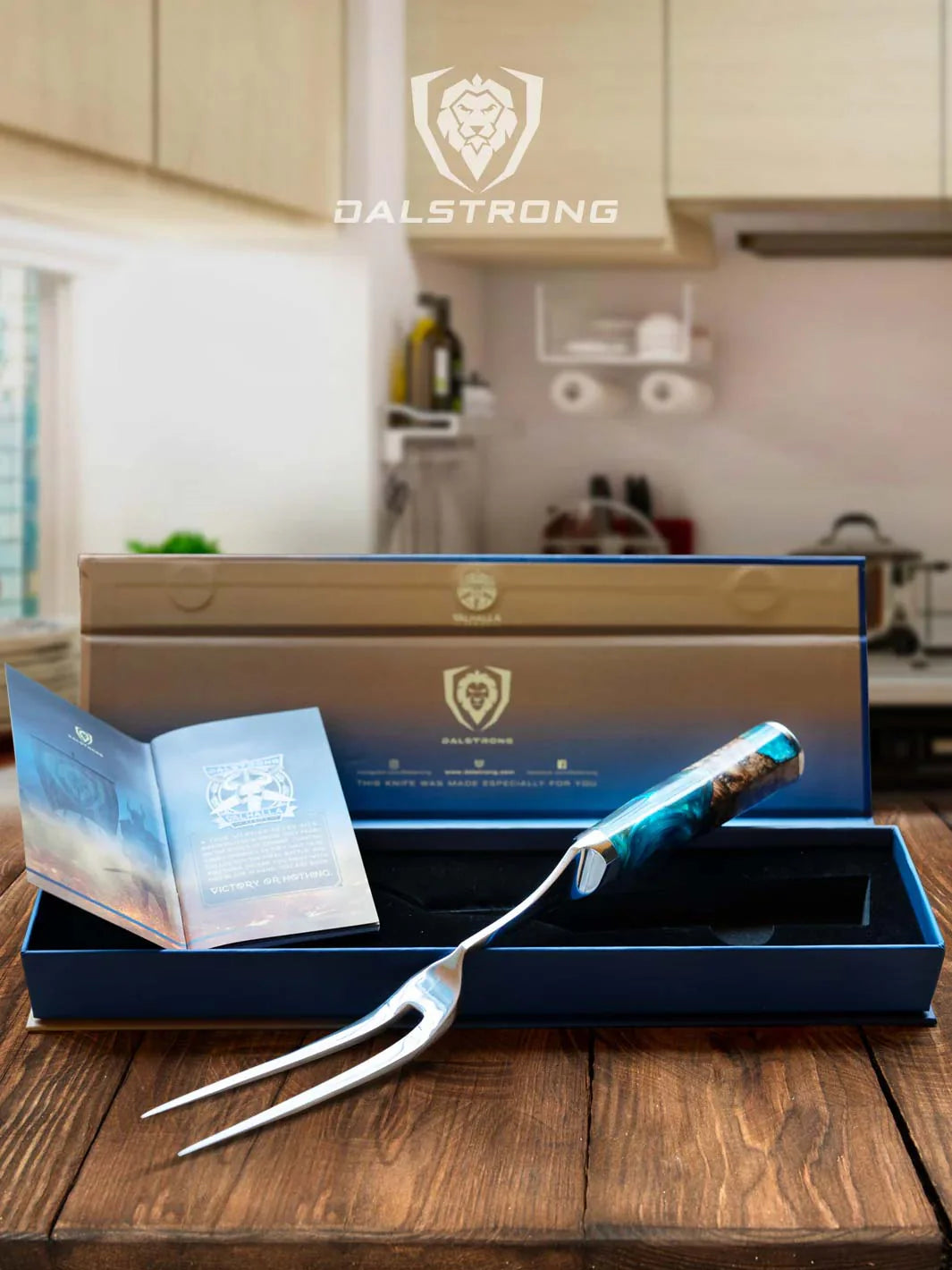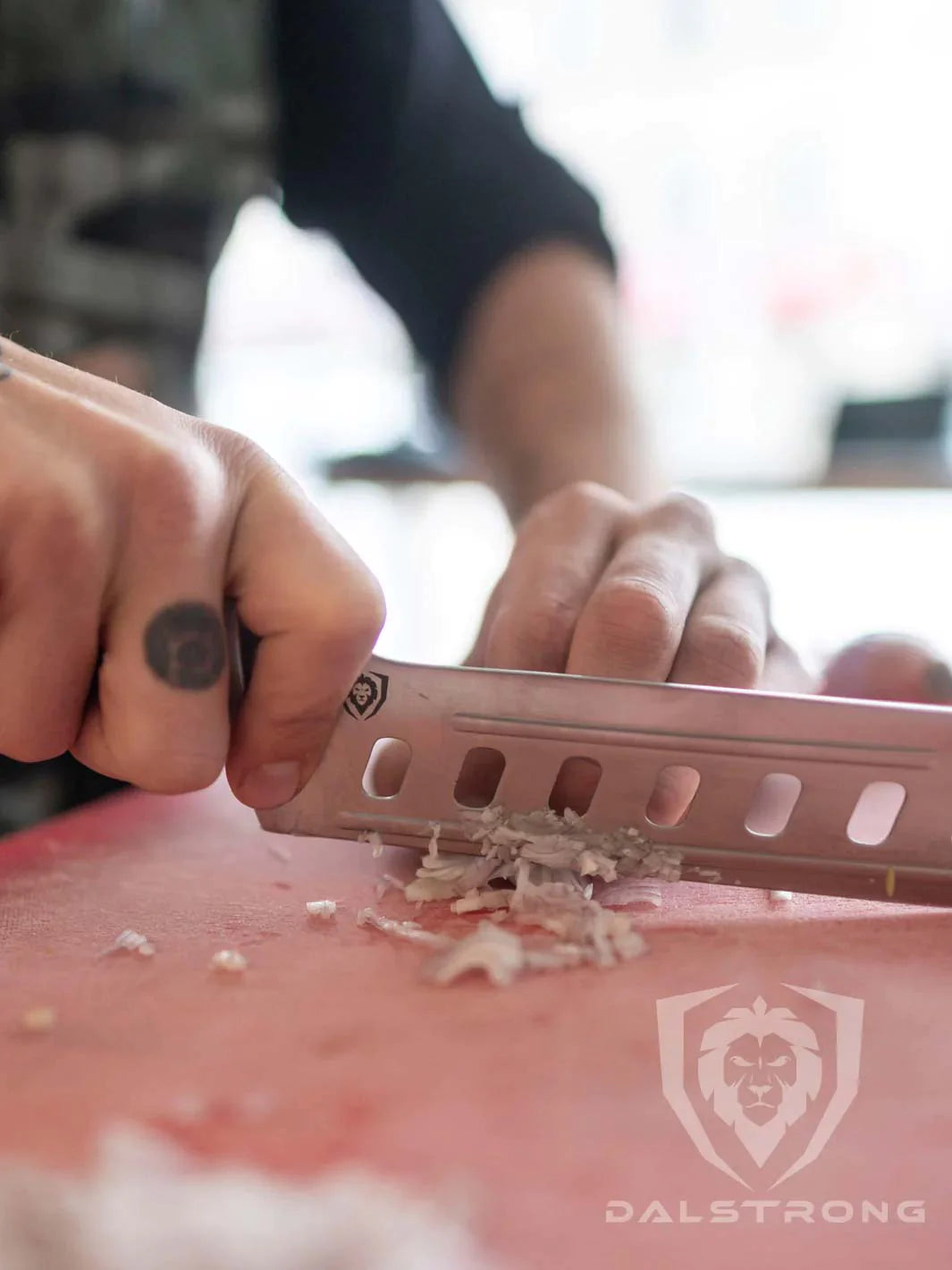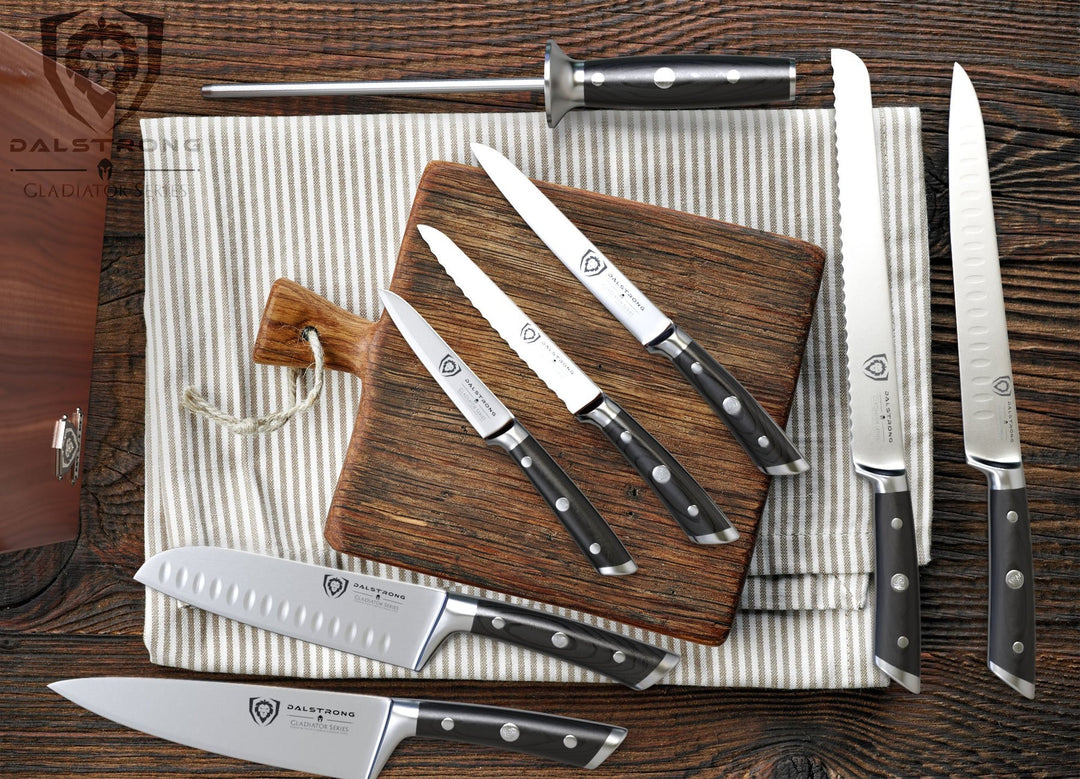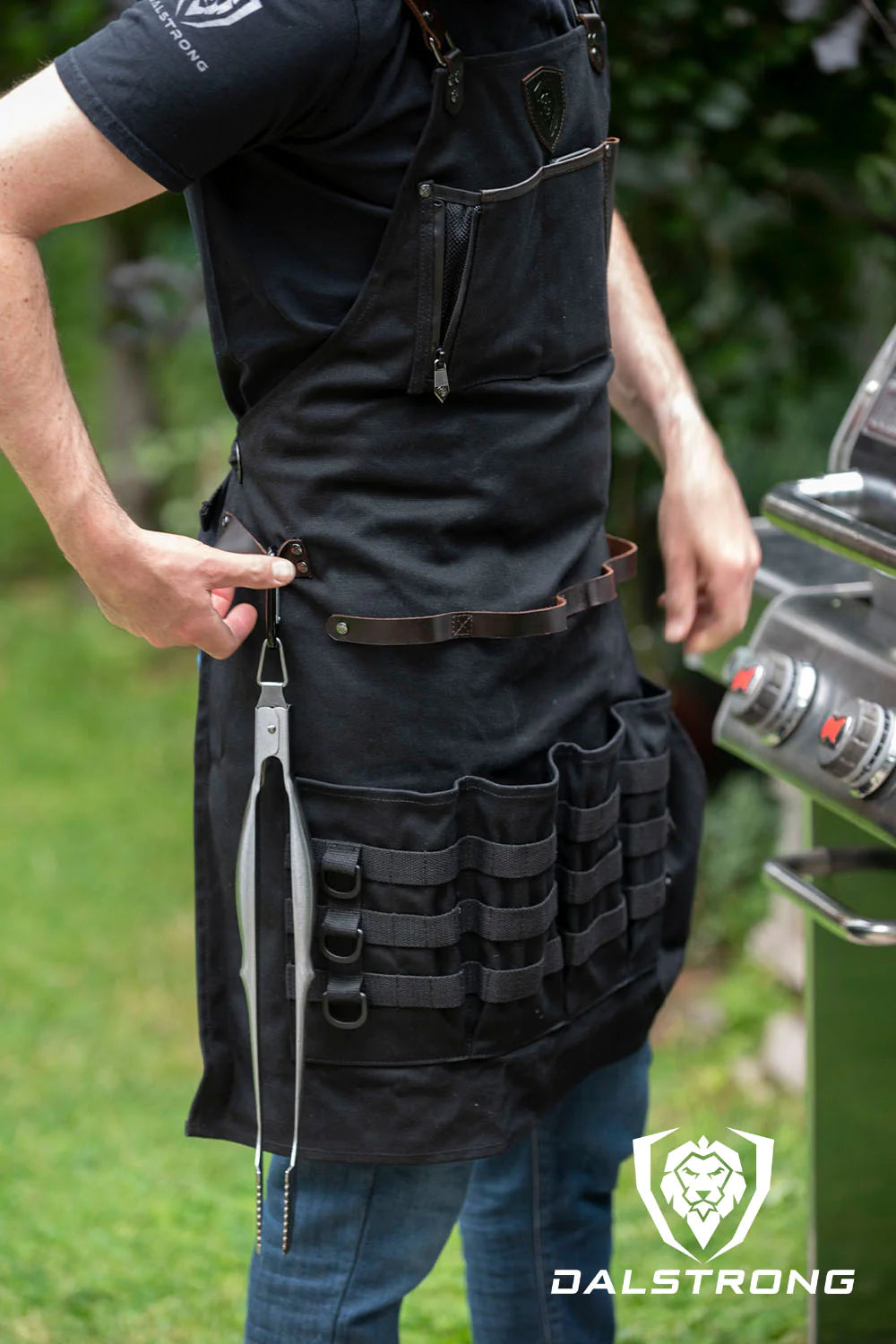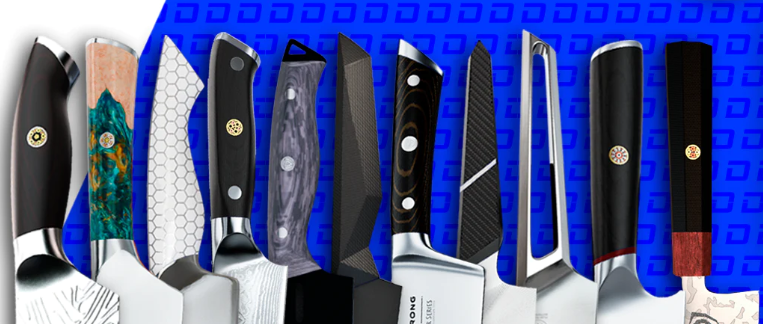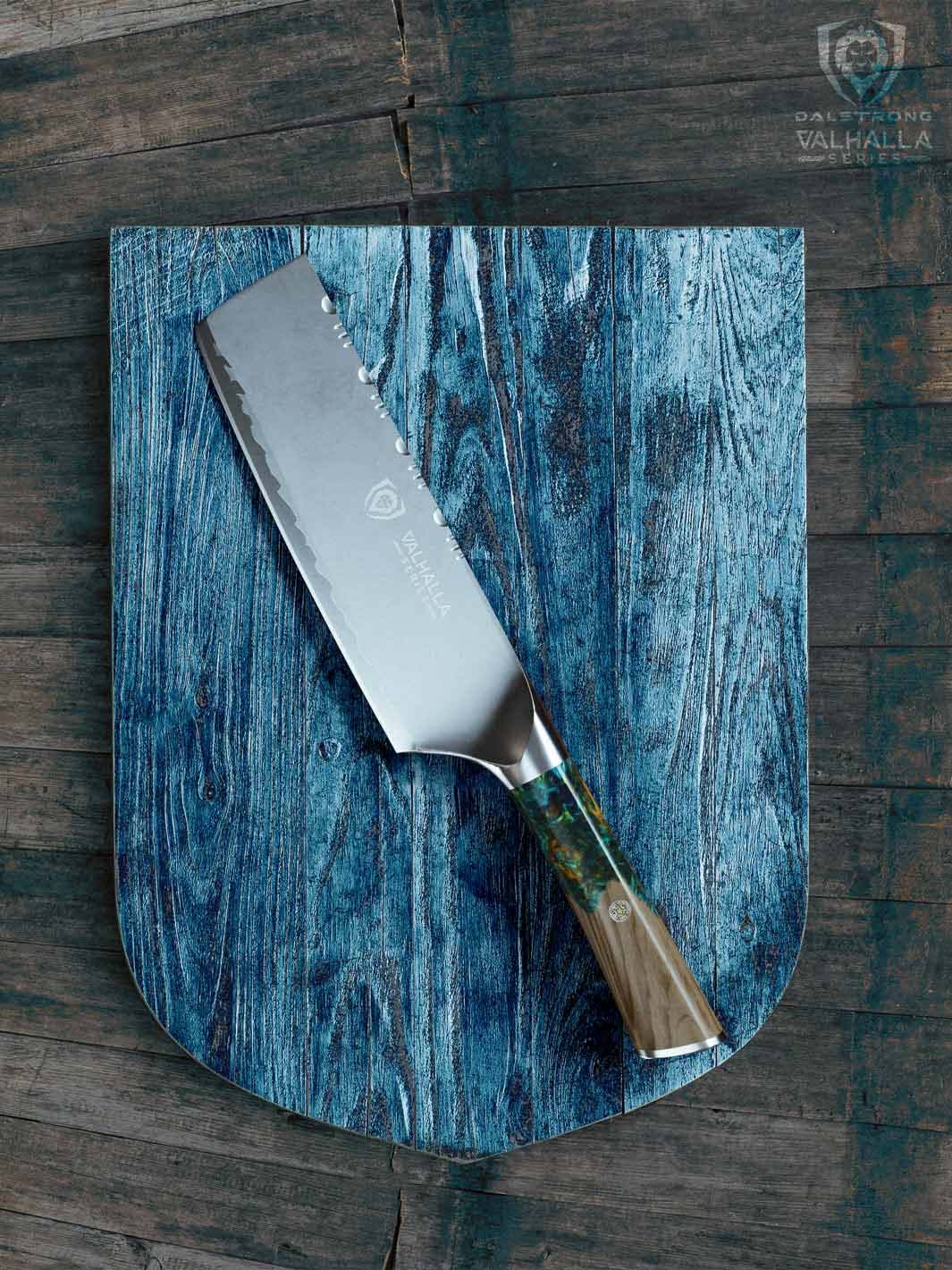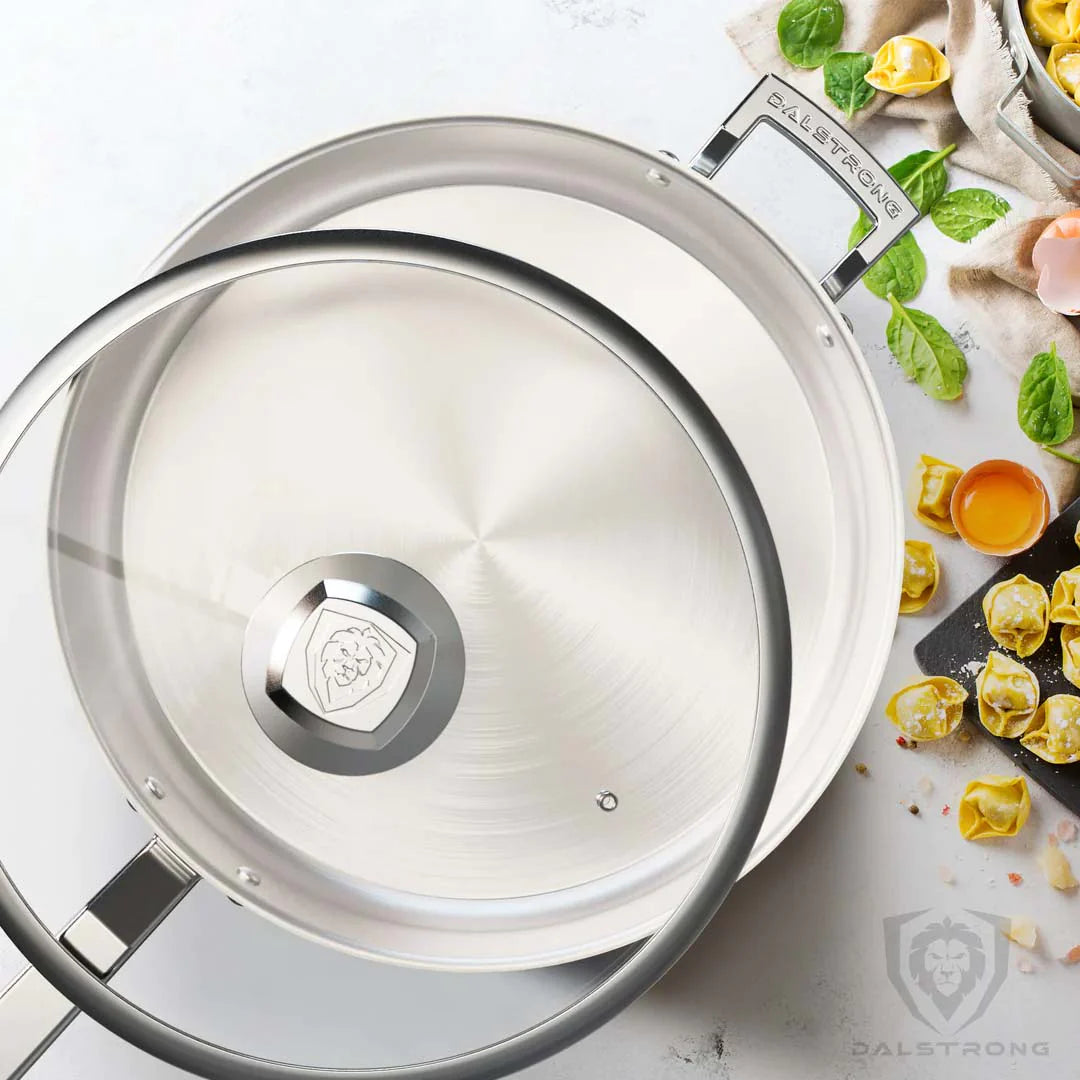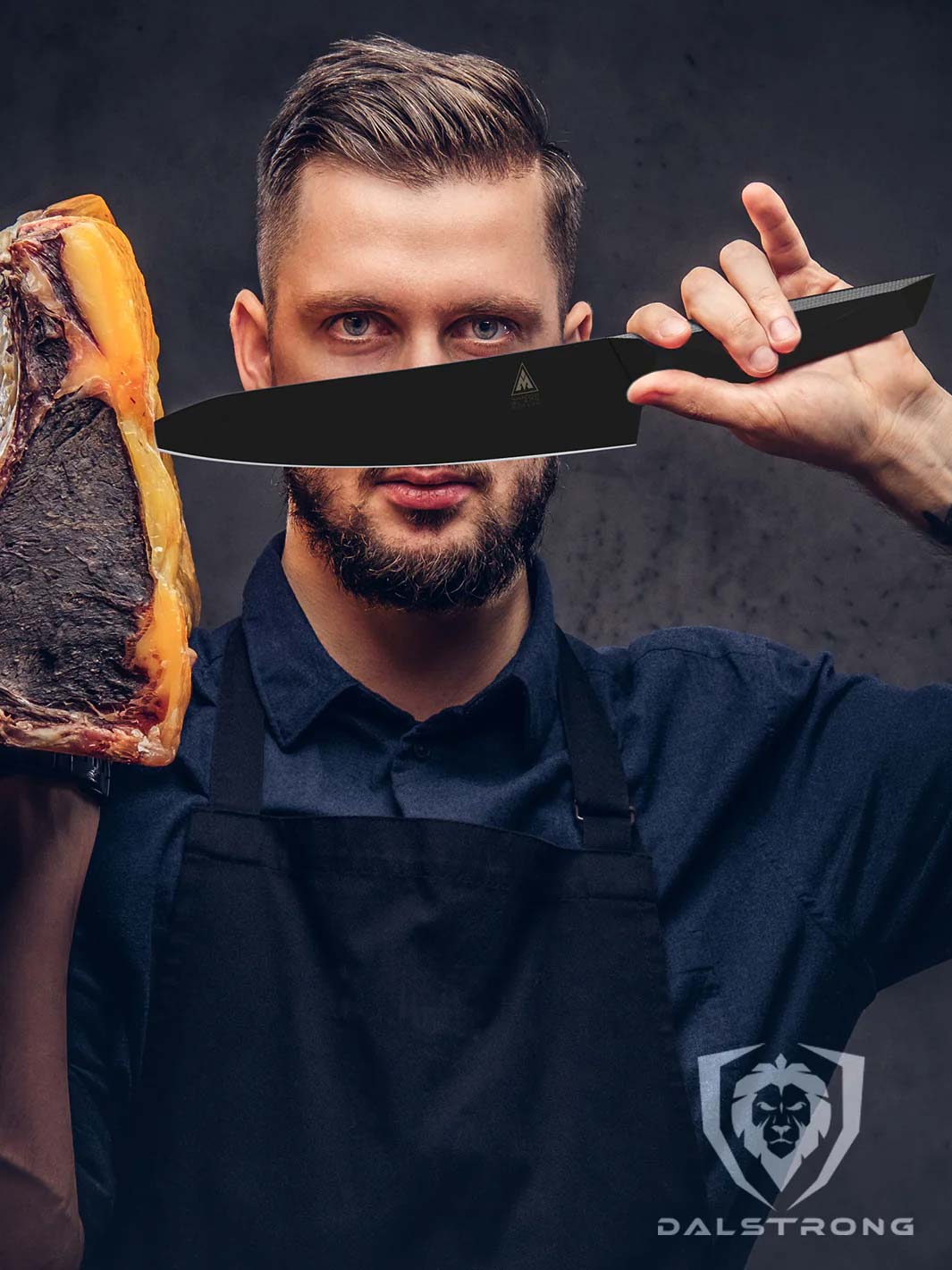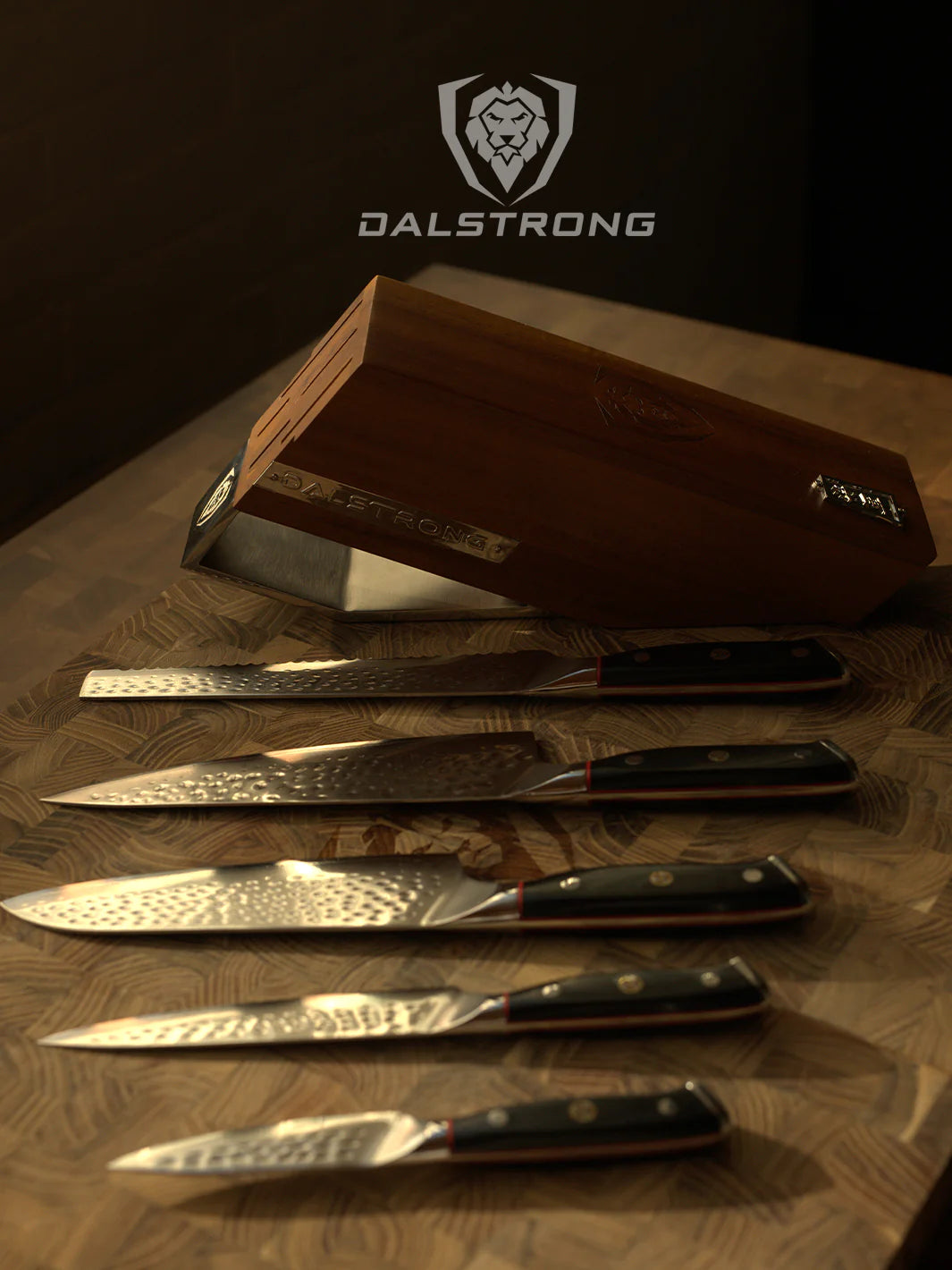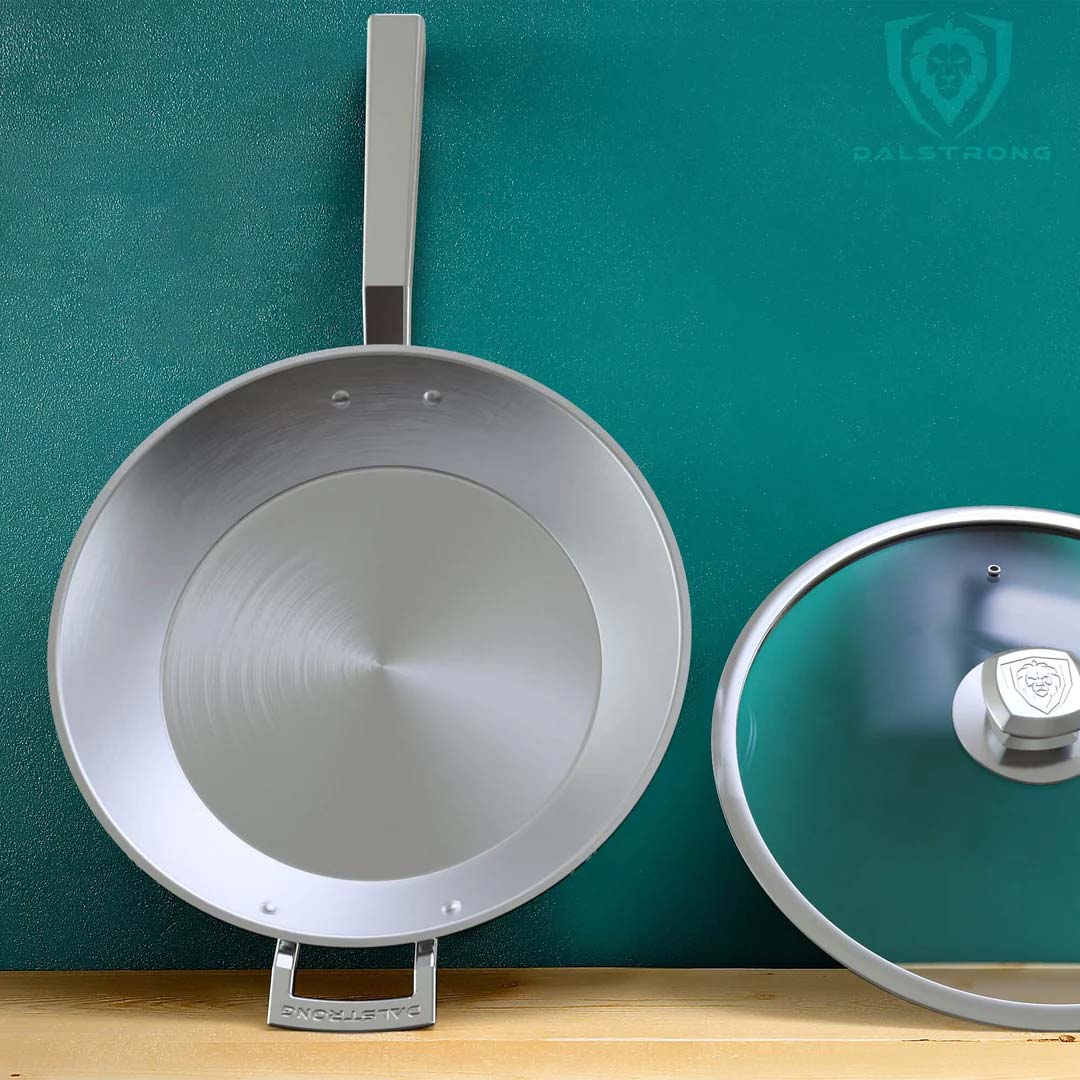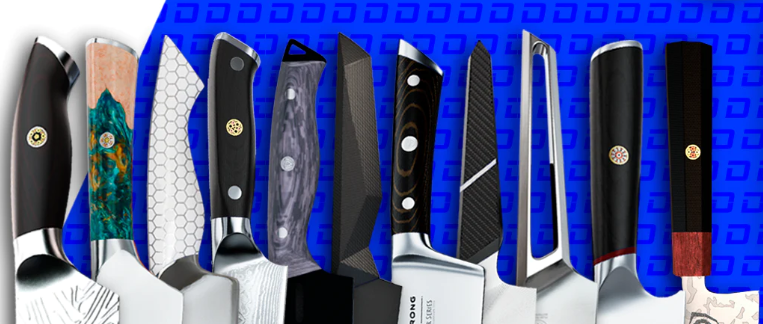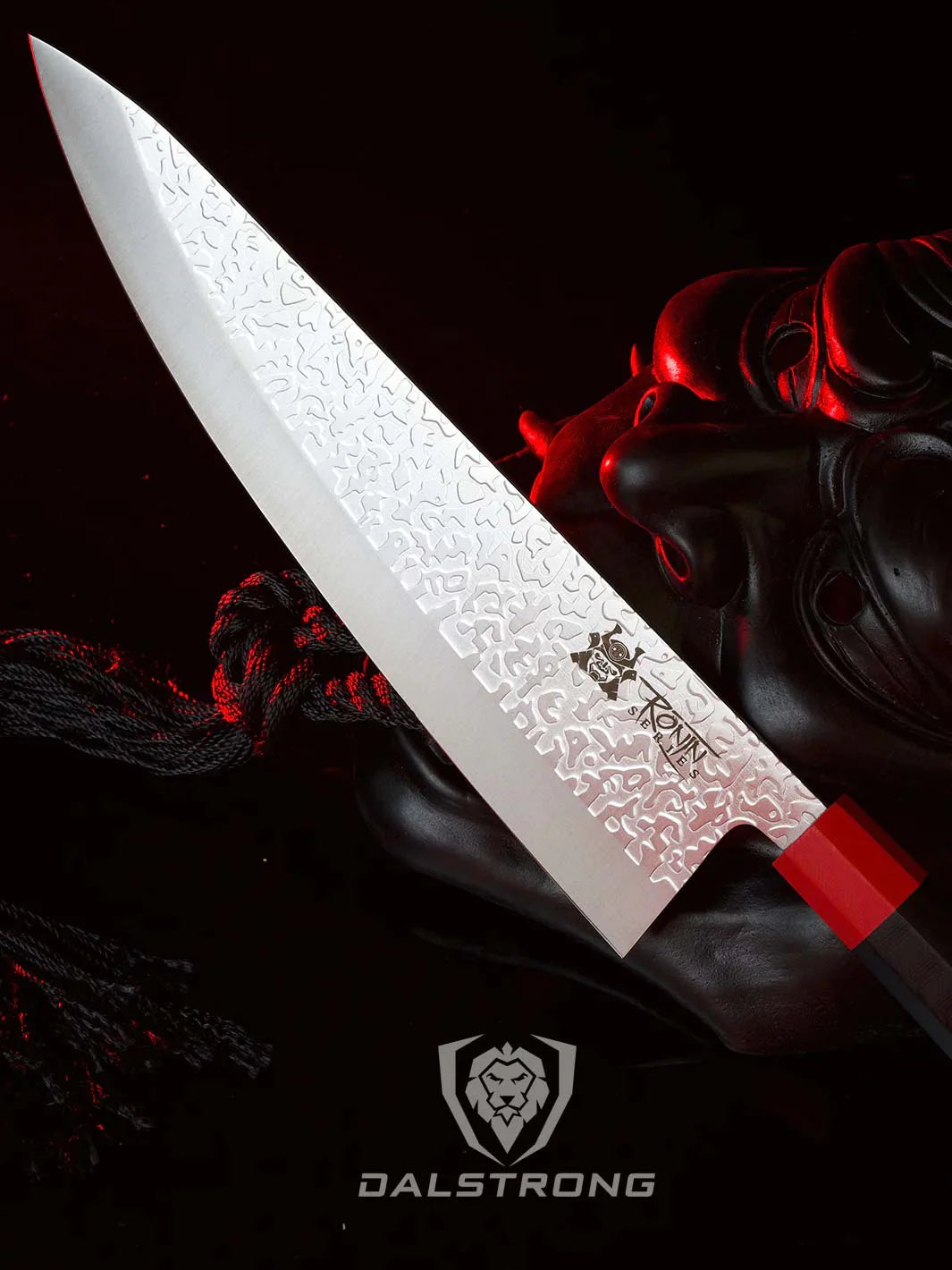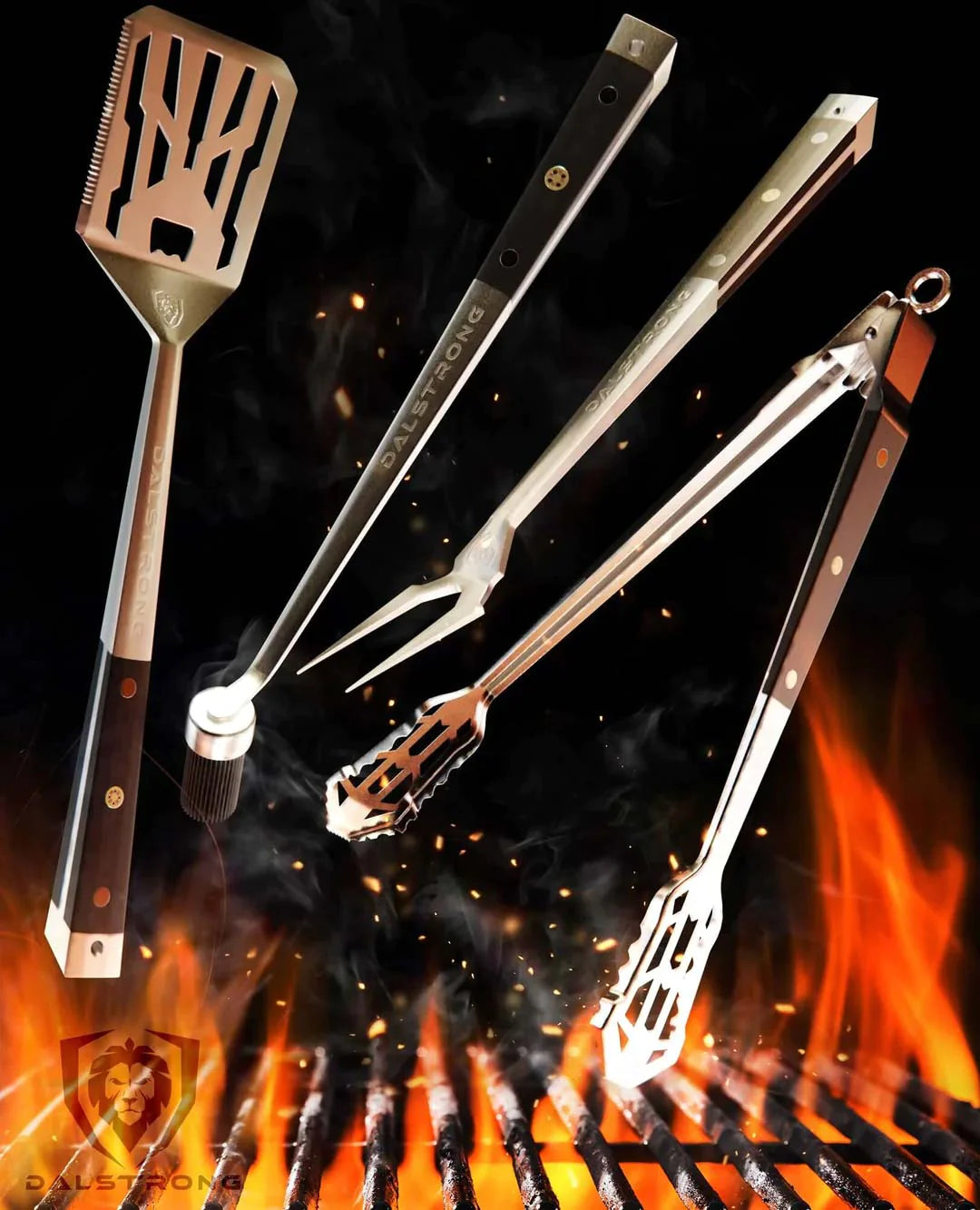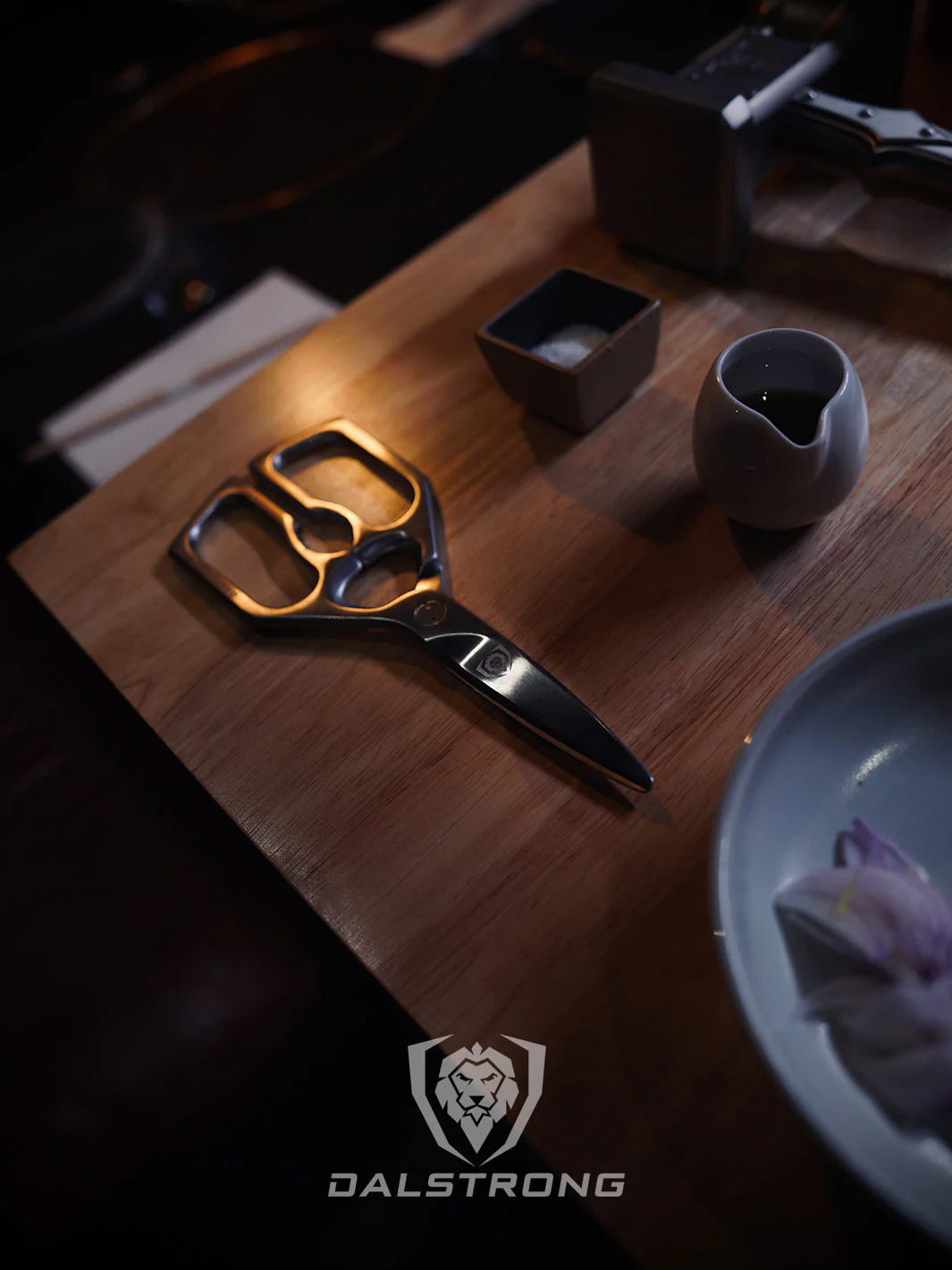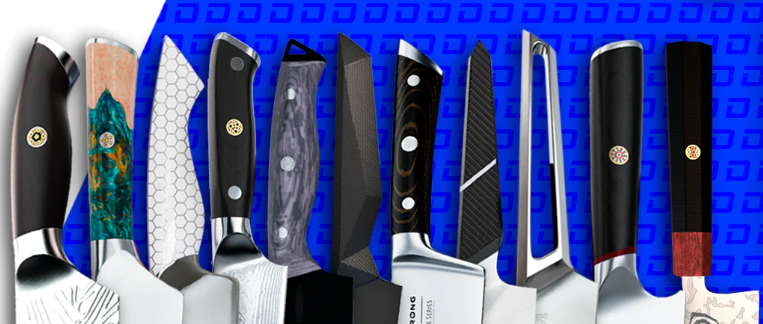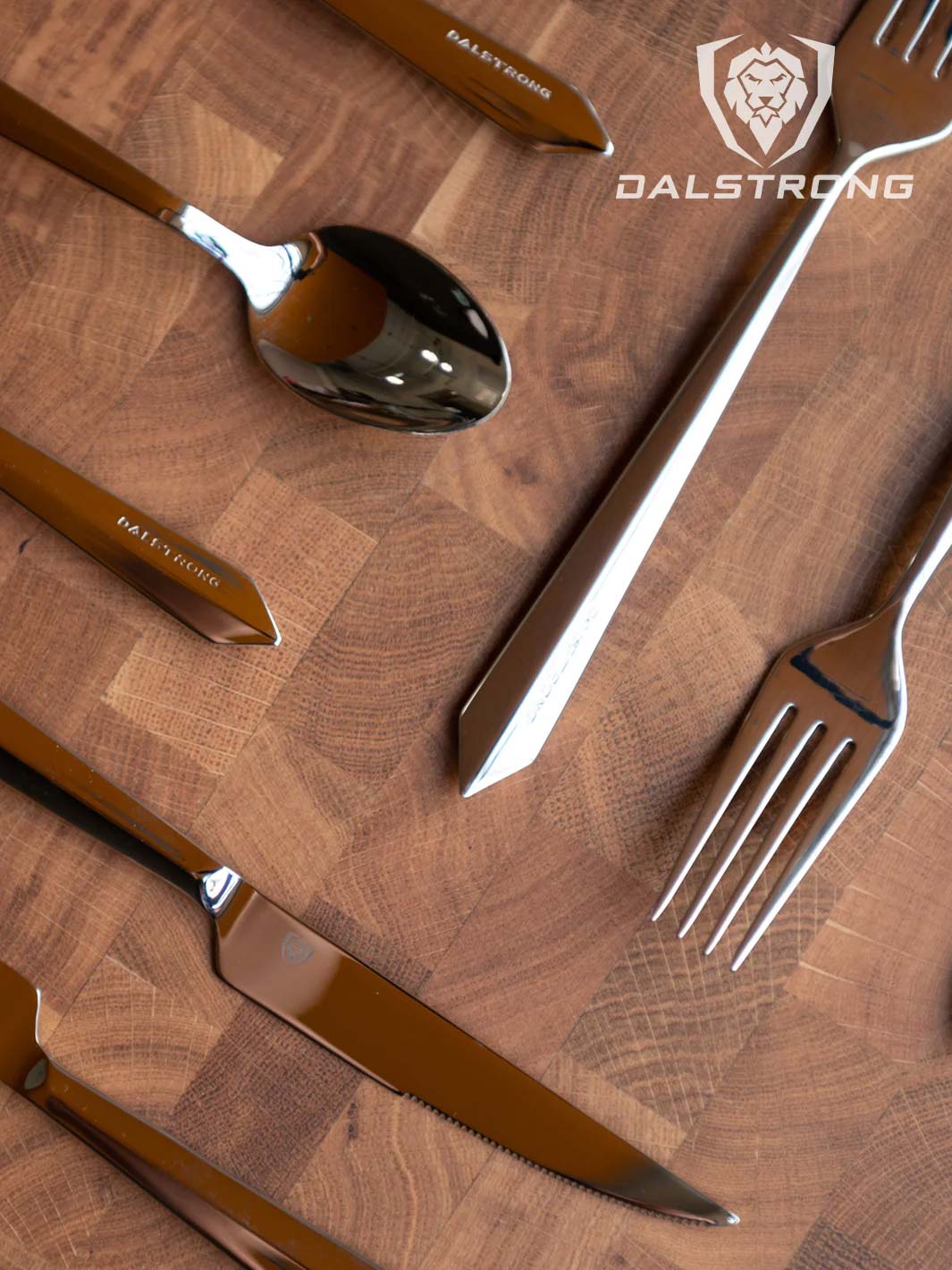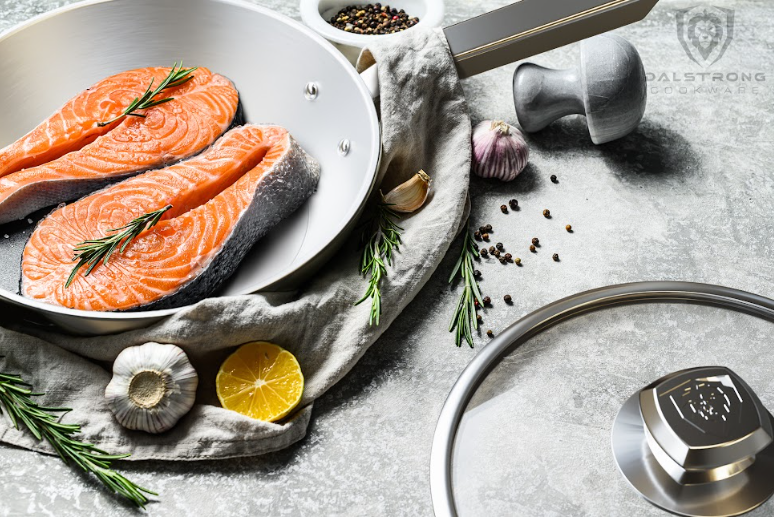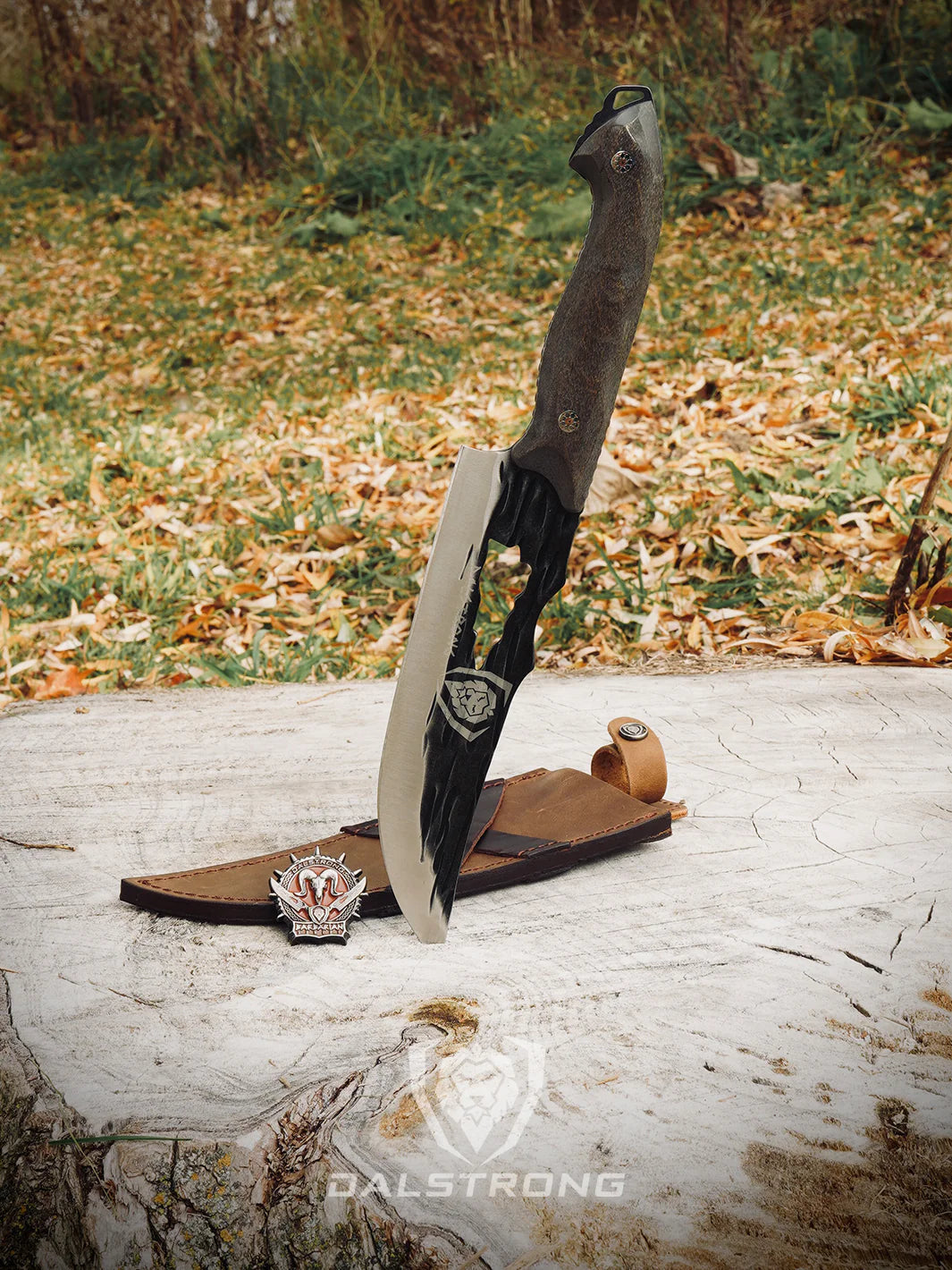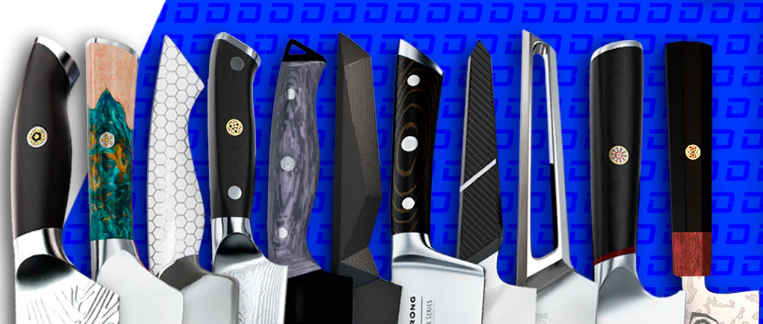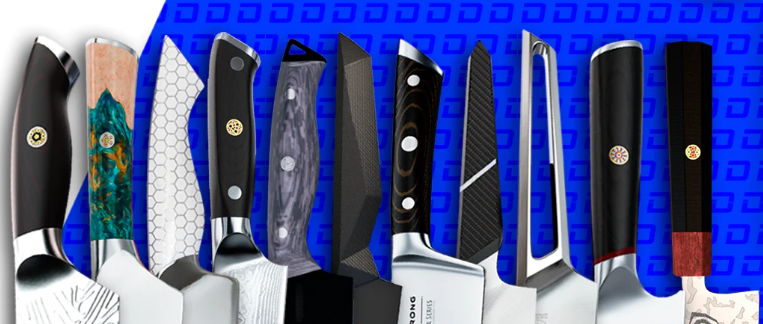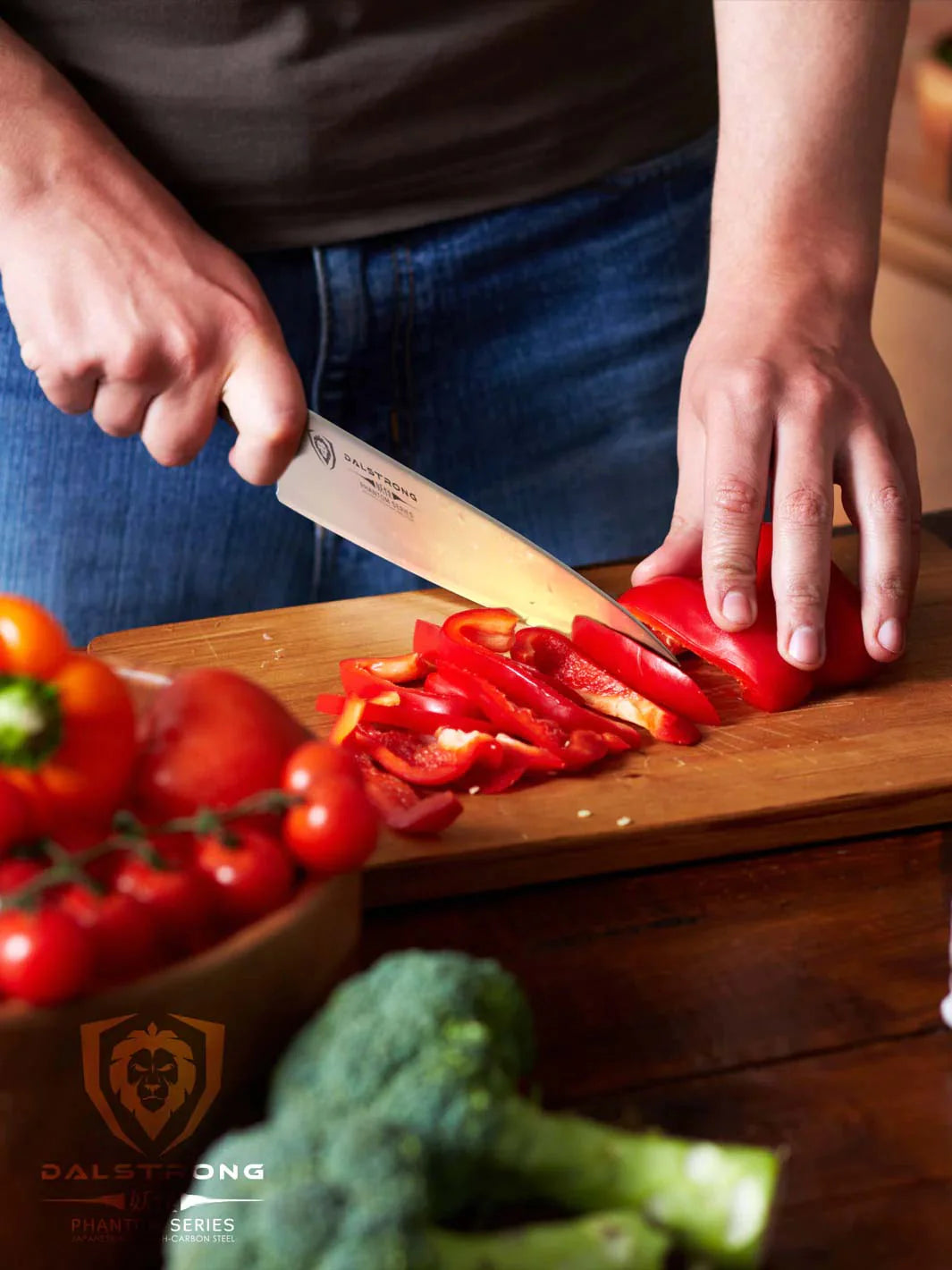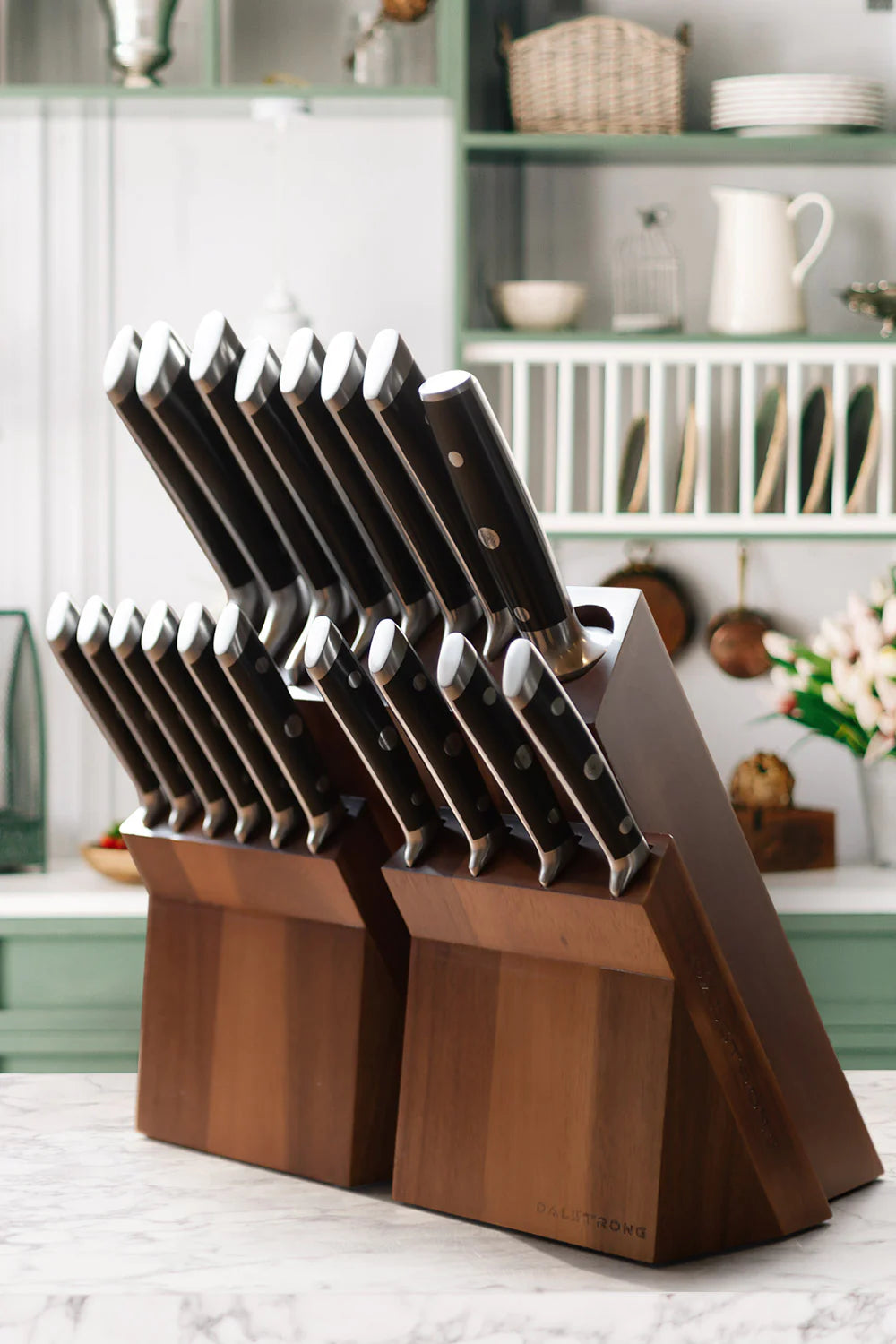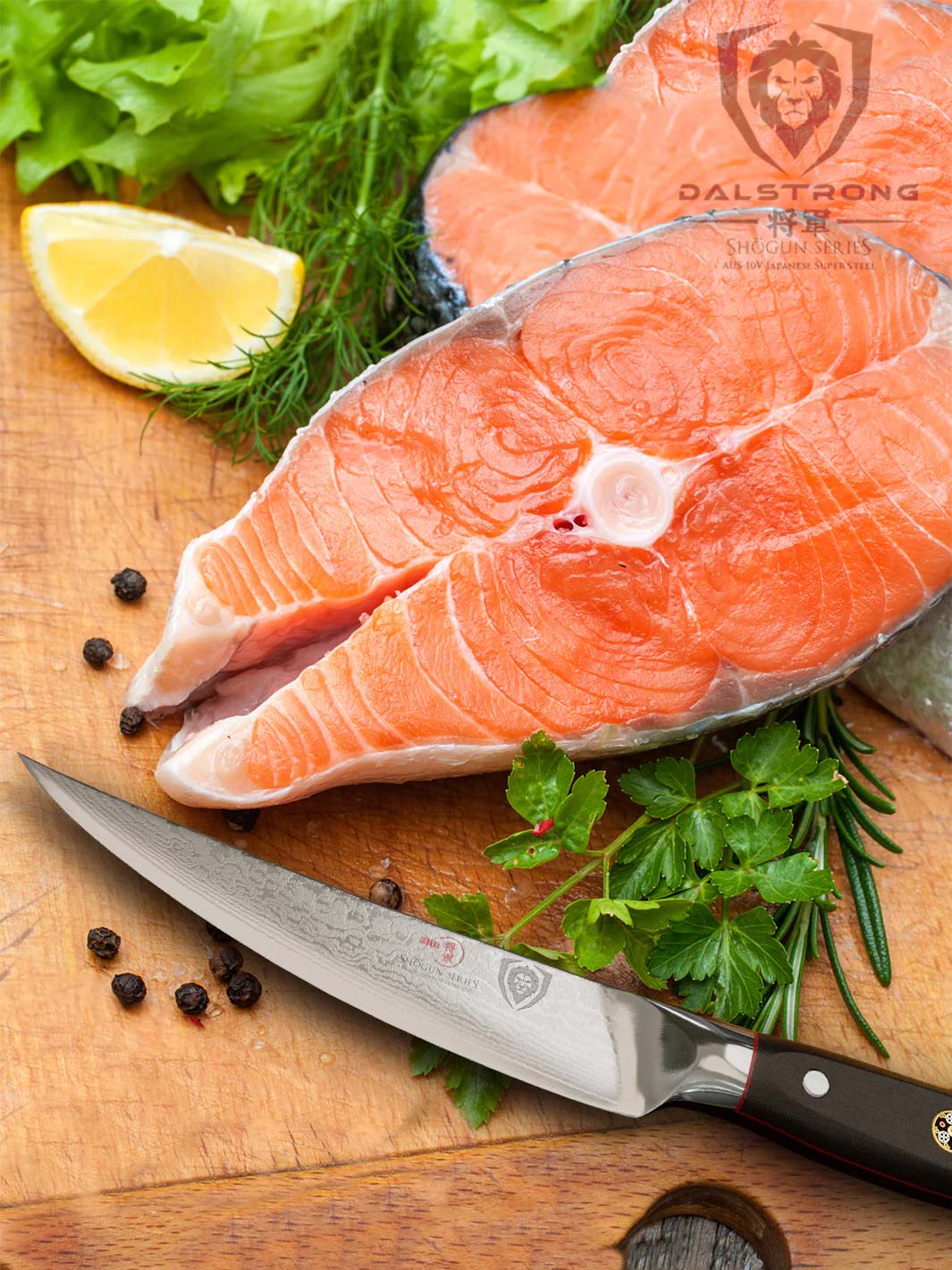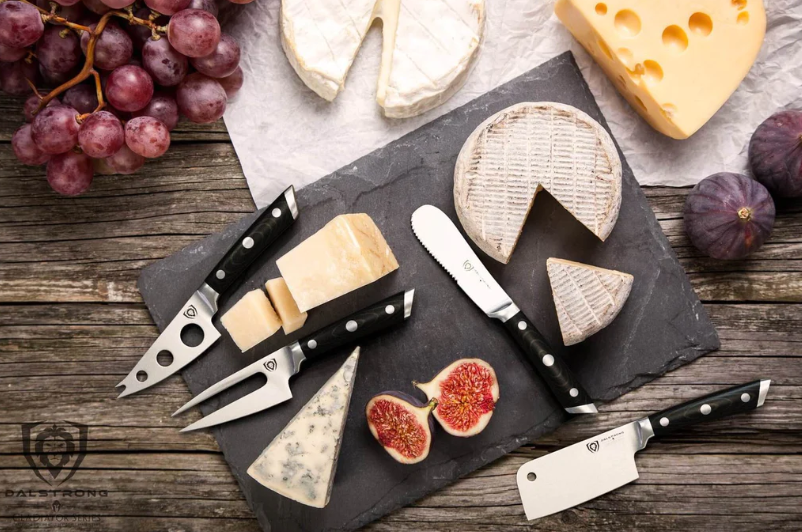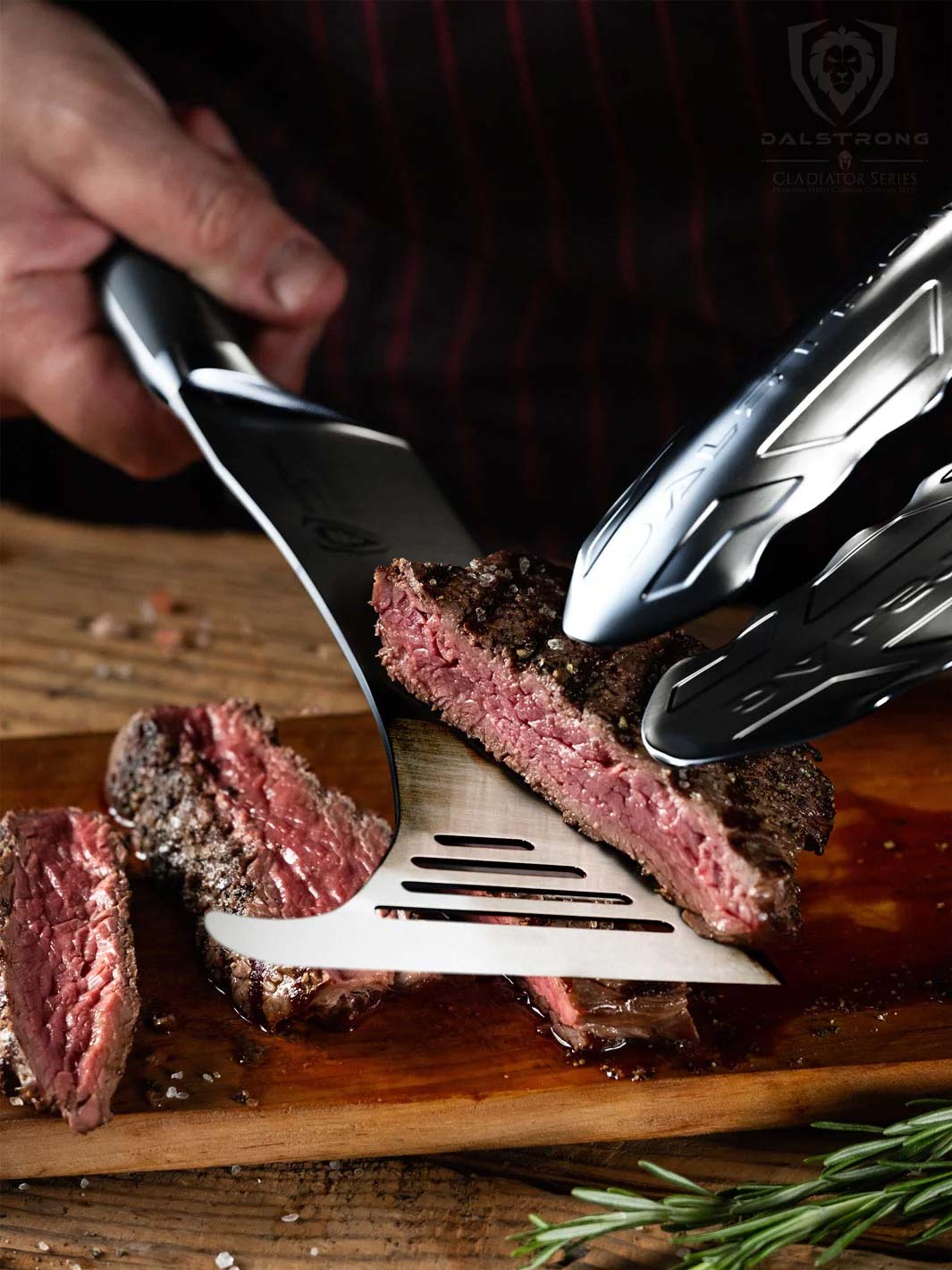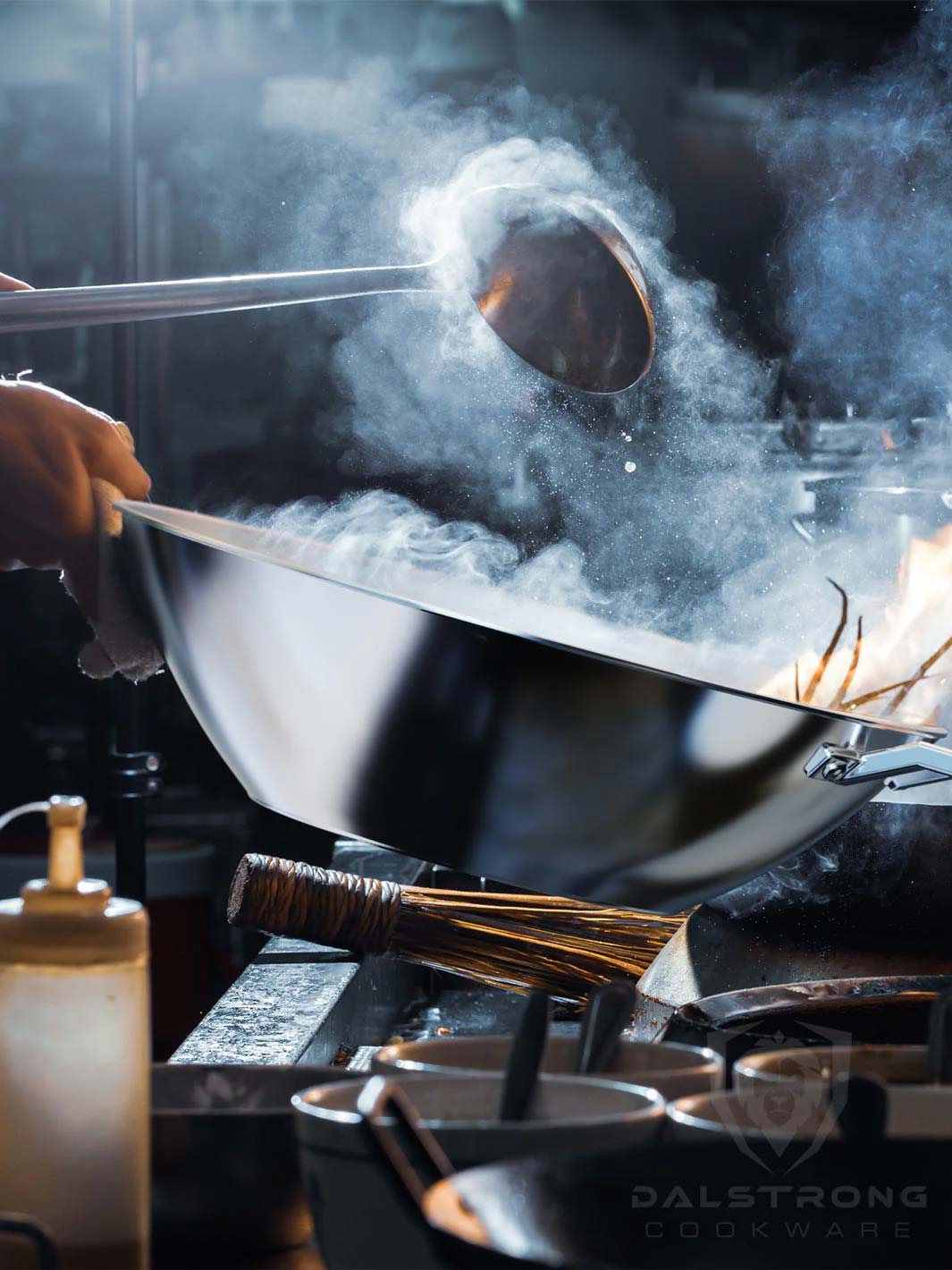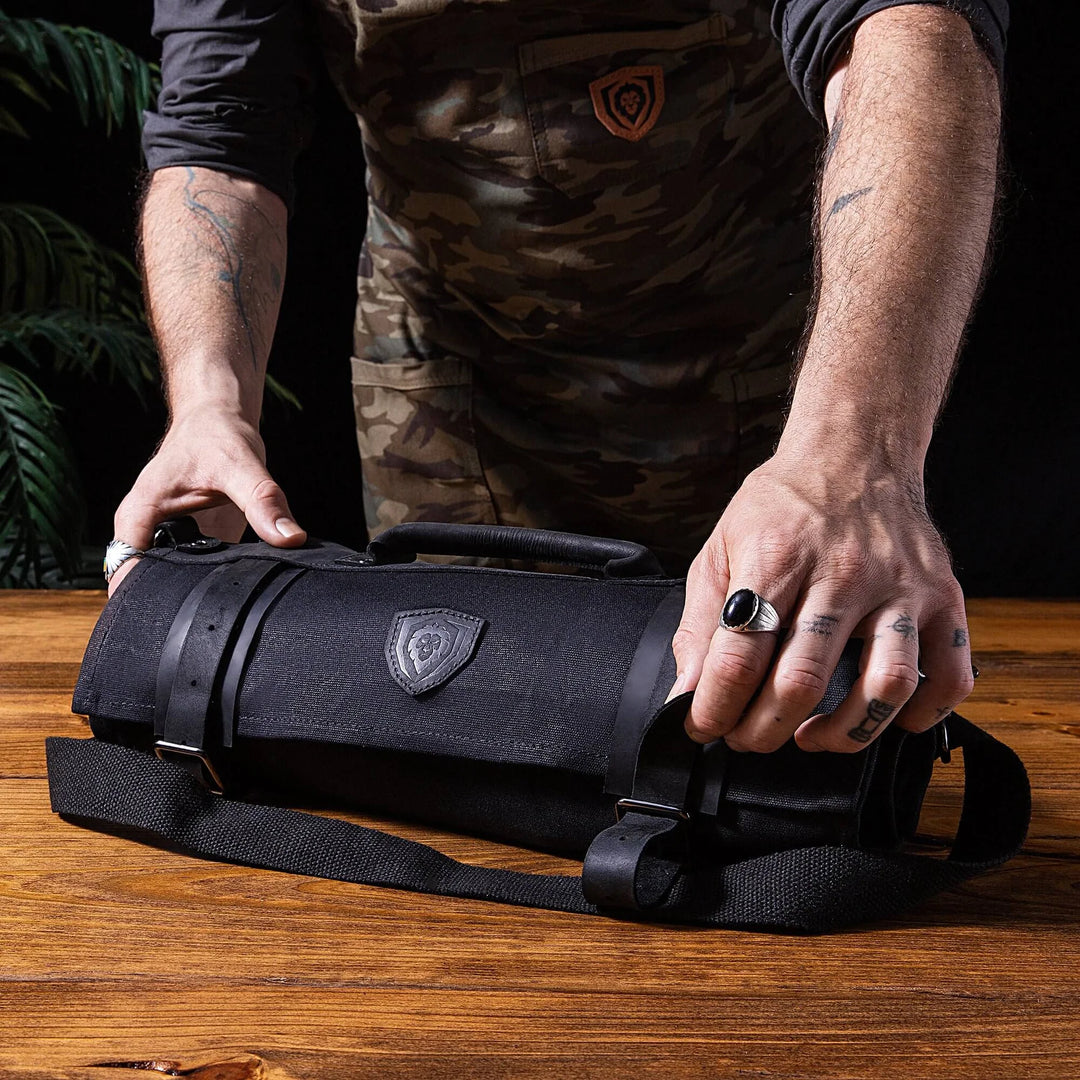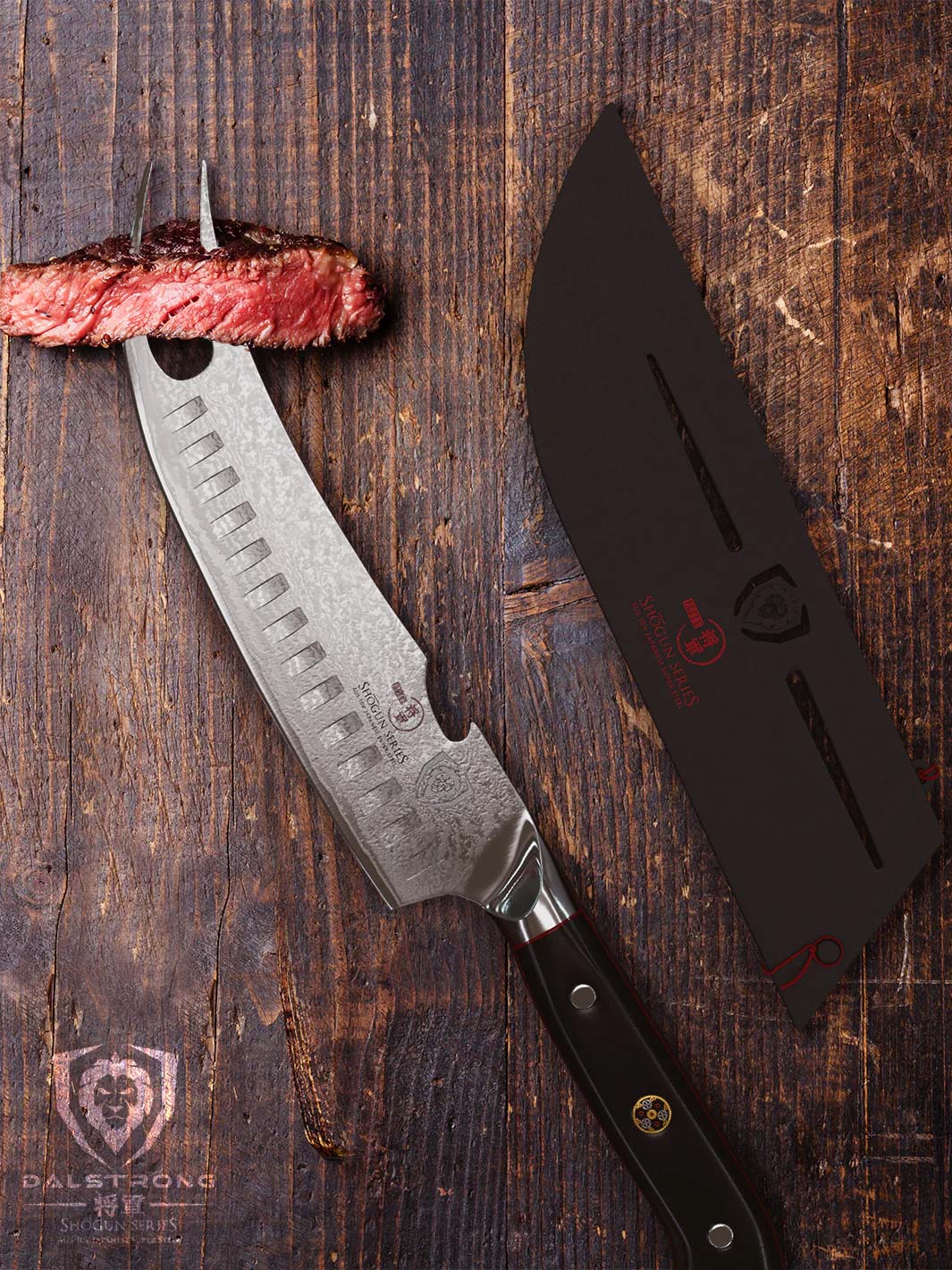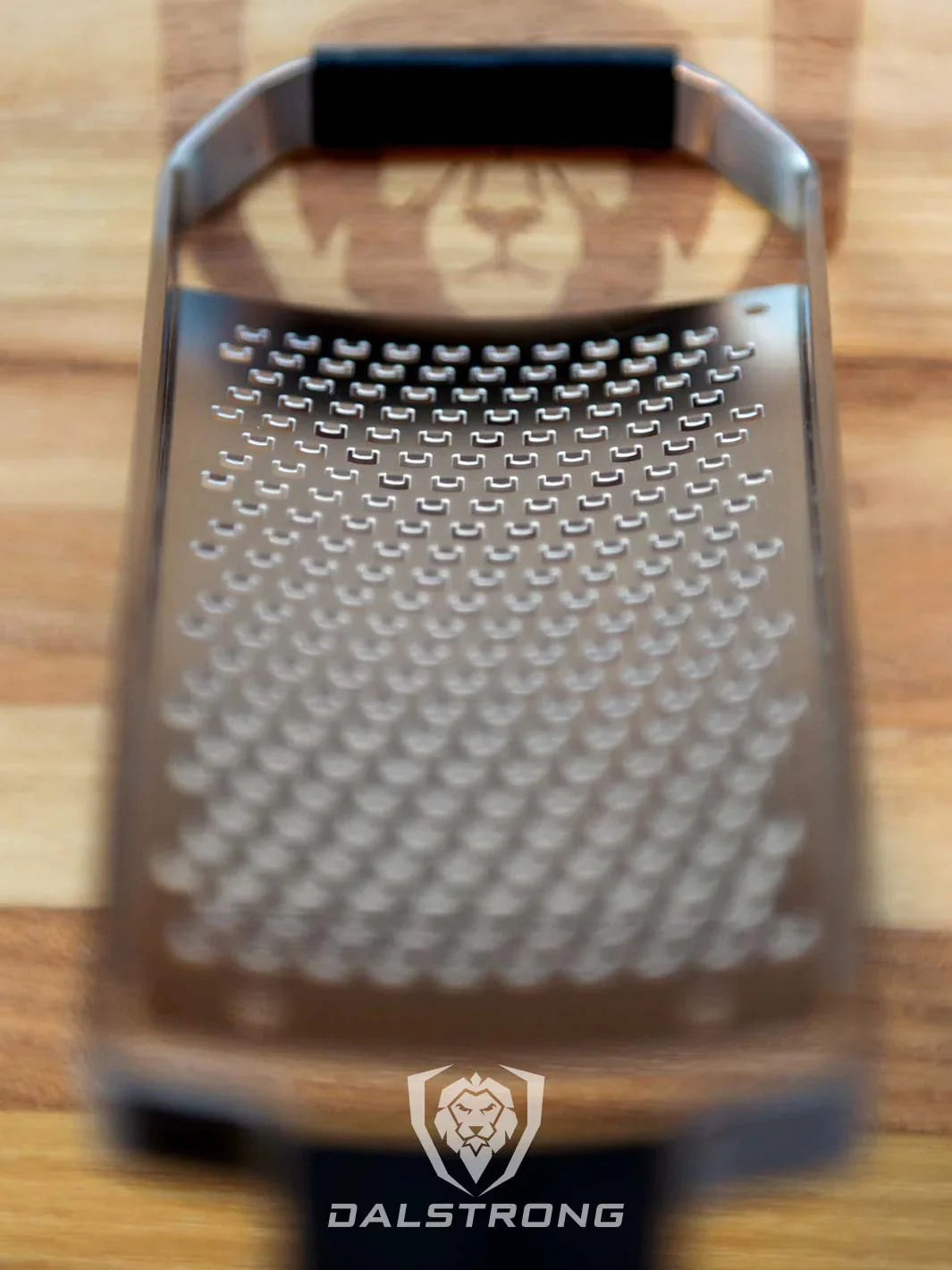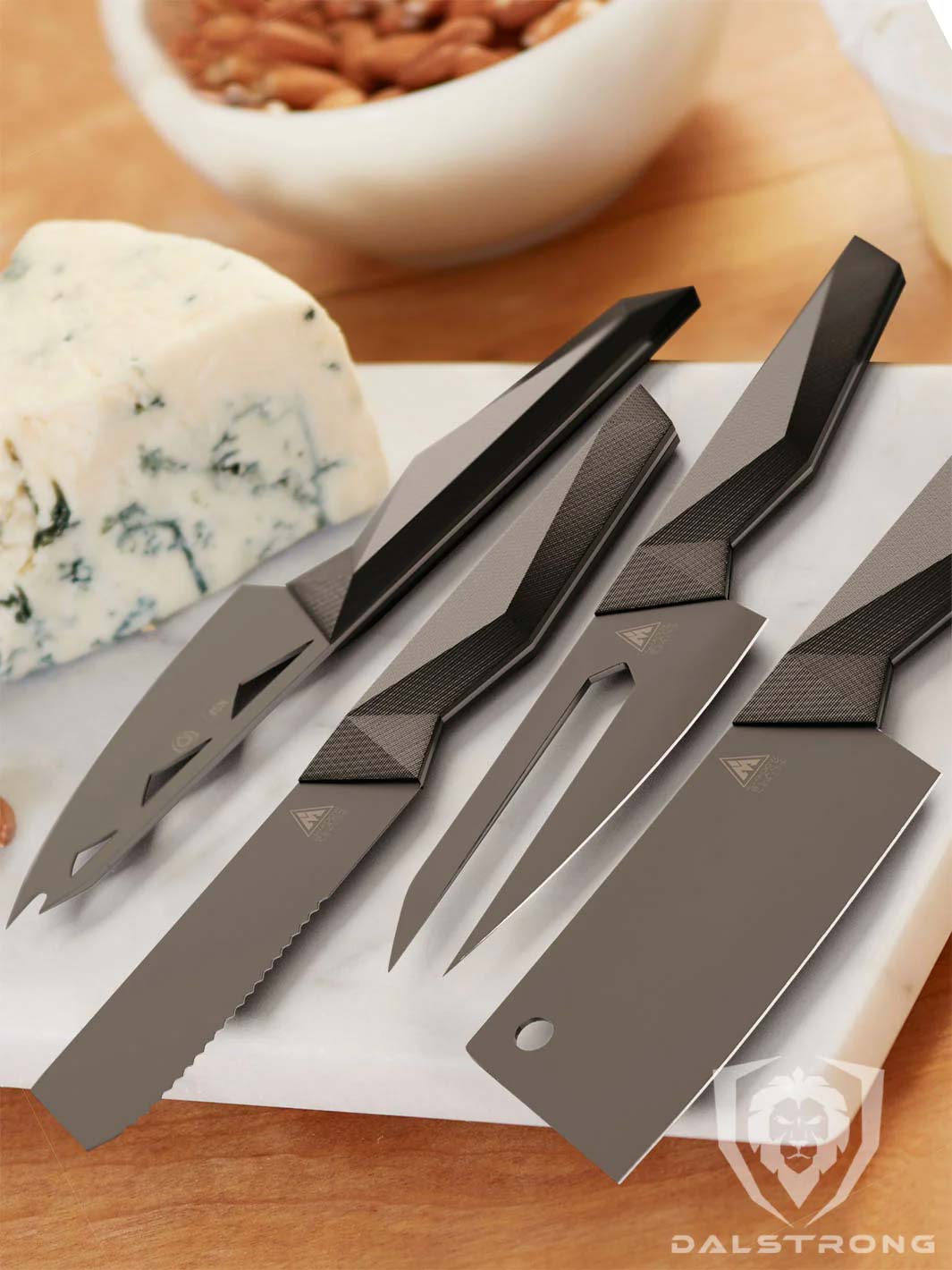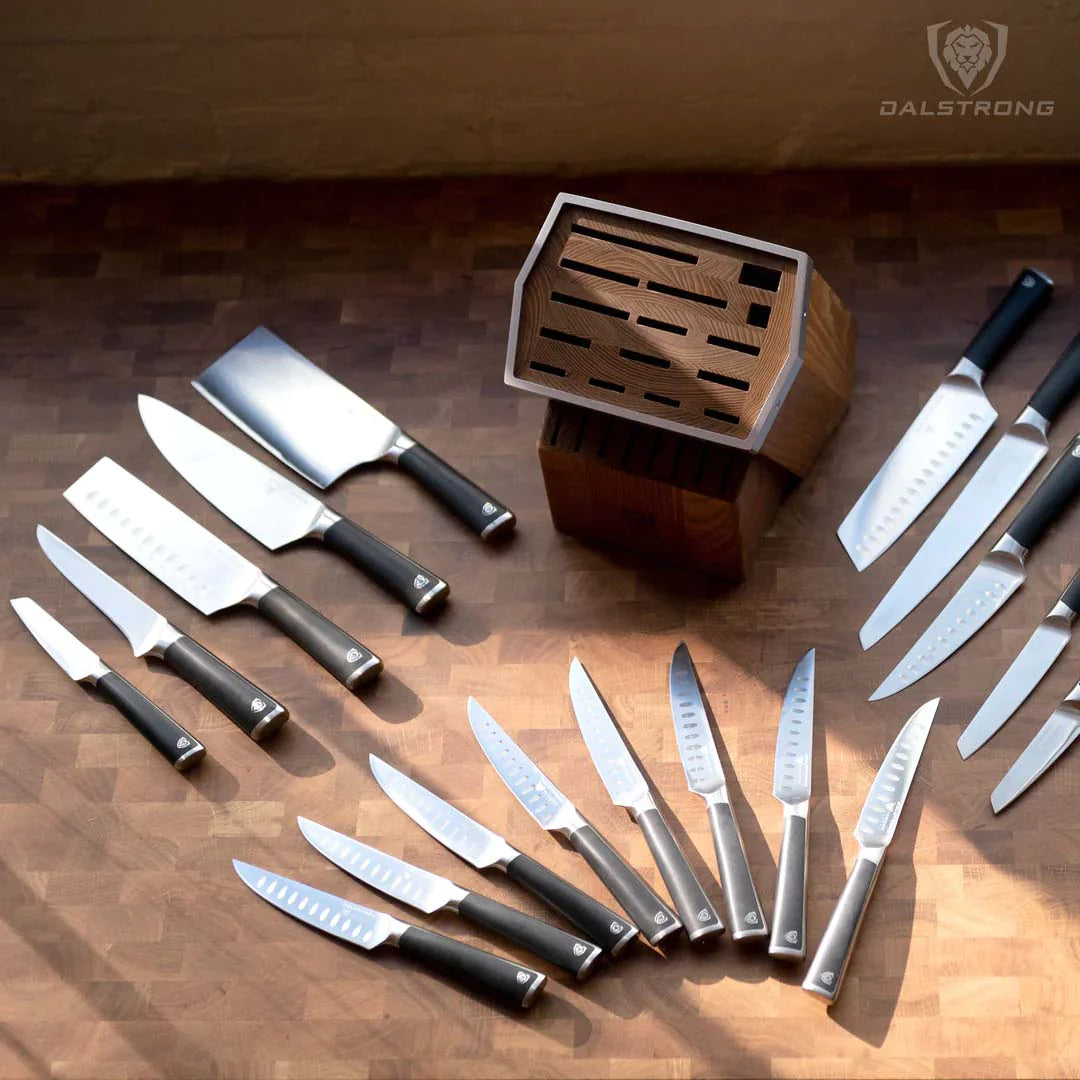Choosing The Right Vegetable Peeler
 Y Peeler 3 Blades Case | Dalstrong
Y Peeler 3 Blades Case | Dalstrong
Peeling things may seem like a simple task but we, people who cook regularly, know that it can be tedious and even challenging if done with the wrong tool or the wrong cooking techniques.
Luckily, human wit gave us vegetable peelers. This practical kitchen accessory simplifies the process of peeling fruits and vegetables and also makes it safer for our hands and fingers.
Read on to learn more about one of the kitchen’s more quiet and noble heroes!
1. What Is A Vegetable Peeler?
Fun fact: Did you know that vegetable peelers are actually a type of knife? Yes! They fall under this category even though they look very different from the rest of the kitchen knives in your pantry.
Peelers are kitchen gadgets specially designed to remove the skin of fruits and vegetables. To this end, they have a special blade designed to adapt to the shape of certain foods.
A vegetable peeler basically consists of 3 parts: a handle, the blade holder, and the blade itself. Generally, the blade is made of stainless steel and there are a variety of shapes and types that allow different cuts. The handle can be made of metal, rubber or plastic.
The REX Peeler was the first vegetable peeler, invented and patented by a Swiss man in 1947. This iconic first peeler has preserved its essence over the years but at the same time, it has evolved in terms of design and manufacture to offer different options.
Read about 10 genius new uses for your vegetable peeler, here.
2. Types Of Vegetable Peeler
These are different types of vegetable peelers available today:
Swivel peeler (also known as Jonas Peeler)
The swivel peeler is one of the most popular models today. Also called the Jonas peeler, they have a straight handle with a vertical blade that is able to turn a bit. They work great on long vegetables such as carrots, zucchini, cucumbers and asparagus, and also on round, small to medium-sized produce such as potatoes and radishes.
Straight peeler (also known as Lancashire peeler)
Another popular design, quite similar to the Jonas peeler except that the blade is fixed. It works by pushing the blade outward along the fruit or vegetable to remove the skin. They can cover most of everyday peeling tasks.
Y-shaped peeler (also known as Swiss peeler)
This peeler has a “Y” shaped handle and a horizontal, rotating blade (swivel). It works by pulling the peeler horizontally, starting at the outer end of the fruit or vegetable, and towards your body. Another way is to hold the item firmly and peel from the top down.
This type of peeler is as comfortable to hold as it is safe, because the blade is further away from the hands.
Some of them come with a potato eye remover, therefore they make a great potato peeler. They are also ideal for other round vegetables and fruits such as pumpkins, beets, sweet potatoes, apples, etc.
Julienne peeler
This peeler is better for cutting thin, uniform strips of vegetables, the cutting style known as julienne (for example, for salads or “zoodles”). For this purpose, the blade has a slightly toothed edge and it works like a Y-shaped peeler, pulling the blade toward the body of the user.
Serrated peeler
These peelers with a serrated blade are special for peeling tricky vegetables such as tomatoes, peaches, eggplants or kiwis, just to name a few examples, because they glide smoothly without crushing them. A serrated peeler works by placing it over the skin and gently pushing down.
Rotary peelers
Super versatile, they’re usually “three-in-one” with interchangeable blades that can cut different vegetables. These blades are usually standard, julienne and serrated.
Paring knives
And of course, peelers are not the only kitchen accessory suited for peeling. A paring knife (a good one) is capable of peeling and cutting fruits and vegetables. Paring knives feature a small blade for maximum maneuverability and are more precise than other types of knives, like a chef’s knife.
3. Different Uses Of A Vegetable Peeler
 3 Piece Paring Knife Set Shogun Series
3 Piece Paring Knife Set Shogun Series
A peeler is not just that ‘thing that peels potatoes’. There may be more to a peeler than you think!
Some designs are better suited for some tasks than others, but essentially, all models serve several practical uses. Check out some of them:
- Of course: removing skin from vegetables and fruits with ease, leaving the flesh intact.
- Removing blemishes from the surface of a fruit or vegetable.
- Cutting the base of a fruit.
- Removing stems from strawberries.
- Removing seeds from peppers.
- Cutting thin strips from hard cheeses.
- Removing potato eyes.
- Creating vegetable ribbons for salads.
- Making vegetable pasta such as the infamous zucchini “zoodles”.
- Making chocolate curls.
- Removing strings from celery.
- Making citrus garnish for cocktails.
- Making lemon zest.
- Shredding cabbage for coleslaw.
- Cutting julienne or thin slices of onions.
- Making crispy potato skin chips.
NON-FOOD RELATED USES:
(Note: it’s better to use a different peeler for this purpose to avoid food contamination)
- Grating or shaving soap to make decorative curls or flavoring.
- Shaving crayons and using the shavings in artistic endeavors.
- Carving wax into flakes to make artisanal candles.
4. Recommended Dalstrong Vegetable Peeler
If you’re ready to take your peeling equipment to the next level, here are some great recommendations:
A smart design aiming to create a highly versatile kitchen peeler. This Y peeler comes not with one, but three different blade styles to cover a wide variety of uses: A fine blade for standard peeling, a serrated blade for tomatoes, and a julienne blade for julienne creations. The Y-design of this peeler is suitable for professional or home cooks, both right-handed and left-handed.
PROS:
- Interchangeable blade structure with easy locking system.
- The Japanese stainless steel blades will not only peel any type of fruits and vegetables; they will also excel at shaving cheeses, chocolate and butter.
- The rotating system allows them to adjust to the surface of food with minimal effort.
- The space between the blade and the bridge prevents food from sticking.
- Textured nonslip handle for better grip.
CONS:
- Some professional chefs may prefer a wider handle for more control.
- The interchangeable blade system comes at a cost and it could be better for certain budget restrictions to combine a regular peeler with a knife, for example.
2. Swivel Straight Peeler | 3 Blades Case
Another convenient peeler with interchangeable blades to work large, long, soft, crusty vegetables or anything you like. But this time, with the advantages of a straight handle and a vertical blade that rotates gently as you press down. Just as the one above, this peeler includes a thin blade, a serrated blade and a julienne blade.
PROS:
- A straight peeler model is very intuitive and easy to use.
- Top peeling performance even on intricate food surfaces.
- The interchangeable blades are easily removed and inserted.
- The stain-resistant design makes it easy to clean the peeler.
- Ultra-durable military-grade G10 handle.
- Comfortable grip.
CONS:
- This peeler does not include a potato eye remover, which can be useful in certain situations.
- A Y-shaped peeler is better for cutting thin strips of skin, in case that is what you need.
3. Bird's Beak Paring Knife Peeler 3" | Crusader Series
This small bird's beak paring knife is ideal for peeling moderate-sized fruits and vegetables. It also serves as a coring - and trimming knife. Its short, curved, bird-beak-tipped blade is special for intricate cuts and working peels with ease.
PROS:
- Extremely high quality German steel blade.
- Sharpened to 58+ Rockwell for exceptional performance.
- Hygienic high chrome stainless steel handle.
- Elegant, minimalist design that fits any decor.
- A full groove on the blade reduces friction and lightens the knife, improving its balance.
CONS:
- The shape and material of the handle are unusual. Some may prefer a paring knife with a more conventional style.
- This is a paring knife designed for precision tasks and excellent for peeling, but it may not be easy to do other stuff with it, like dicing, for example.
4. 3 Piece Paring Knife Set | Shogun Series
Well, if you’re really that into working with fruits and vegetables (or enough to end up reading this article about peeling them!), why not go big and get a whole set? This 3piece peeler set / paring knives (includes a 3.5" paring knife, a 3.75" serrated paring knife, and a 2.75" bird's beak paring knife) are good for peeling and excellent for cutting/slicing afterward.
PROS:
- The three of them are perfectly suitable for peeling different types of food.
- The ultra-premium Japanese carbon steel blades offer maximum performance and strength.
- Extraordinary edge retention.
- The short blade length allows for a more meticulous peeling and cutting of vegetables and fruits.
- Unlike a peeler, you can also use these knives for removing seeds.
CONS:
- Peeling vegetables with knives does require some precautions and safety measures that aren’t completely necessary using a peeler.
- This price may be overwhelming if you came here only looking for simple peeler recommendations.
5. Paring Knife 4" | Omega Series
An agile and precise paring knife, and at the same time, offering the versatility of a chef's knife with its superb 4" length. The Omega paring knife is capable of accomplishing a variety of tasks beyond peeling potatoes and carrots. Whether you have to core, slice and peel fruits and vegetables, chop herbs or score detailed patterns, this knife is a great choice for your set of “essentials”.
PROS:
- Longer blade length to reach further.
- Made of ultra-premium American hyper steel.
- Vacuum heat treatment for exceptional performance.
- The 'LiquidMetal' pattern on the blade prevents food from sticking.
- The tapered bolster adds balance and protects your fingers.
- Ergonomic handle with non-slip properties.
CONS:
- For tricky foods like tomatoes and kiwis, you would do better with a serrated paring knife.
- I don’t really understand people who have something against the beautiful pattern on the blade, but if you happen to be one of them, check out the smooth blade in the Paring Knife from the Frost Fire Series.
5. What To Consider When Buying A Vegetable Peeler
 Paring Knife 4" Phantom Series
Paring Knife 4" Phantom Series
Buying a veggie peeler may sound unimportant or unchallenging, and you may feel tempted to buy the first one that crosses your path. But actually, choosing the right one may make a huge difference in your everyday kitchen life.
Considering that, there are several details that can help you make the right choice.
Usage
Consider what is the most frequent use you will give the peeler. Rotating blade peelers are more effective with long vegetables such as carrots or cucumbers, for example. Peelers with a Y-shaped handle, on the other hand, are more suitable for peeling large, round vegetables and fruits such as potatoes and beets. And julienne peelers are best for julienne (obviously).
Grip
Ideally, you should be able to physically test the peeler. Check that it has a firm grip, that it is comfortable to hold and feels secure in your hand. Peelers should offer an ergonomic handle made of a high-quality material.
Blade mechanism
The blade can be either fixed or swivel. If the blade rotates, the peeler can adapt to the surface and it is much easier for round fruits, for example. But maybe you like the stability of a fixed-blade peeler.
Sharpness
A sharp blade is absolutely essential for smooth and fast peeling. The peeler should glide evenly and easily. Look for a peeler with a sharp blade but also with good edge retention so you can enjoy it for longer.
Weight
This element depends on the preference of the person who is going to use the peeler. There is no right answer here. Choose a lightweight peeler if it feels more maneuverable to you; or a sturdy peeler if it gives you confidence.
Ease of use
Using a peeler is quite simple, but still, you should know the different types and how they work because they offer different “feels” and techniques. You should be comfortable with the one you choose.
Easy to clean
The whole idea of peelers is to avoid a mess and make the process of peeling vegetables a bit cleaner and more practical. That being said, some peelers are easier to clean than others.
Quality
A low-quality peeler can be unsafe. Beyond that, it is always best to invest in quality when it comes to kitchen utensils. Look for stainless steel blades or carbon steel blades. Some people swear by ceramic blades, as they are flavorless and odorless and won’t rust.
6. Frequently Asked Questions About Vegetable Peelers
What is the best vegetable peeler for home cooks?
Vegetable peelers are not complicated and every model can be suitable for home use. Most home cooks are good with traditional models like swivel peelers or straight peelers. They both have vertical blades, only one is fixed and the other one rotates.
What are the most famous vegetable peelers?
There are well-known names in the market such as the OXO Good Grips Pro Swivel Peeler or the Kuhn Rikon Y peeler. Dalstrong is mainly a knife brand, but they have a wide selection of high-quality kitchen tools, including peelers.
Is a vegetable peeler the same as a potato peeler?
Well, a potato peeler is one type of vegetable peeler suited to peel potatoes. It usually comes with a potato eye remover. But not all types of vegetable peelers are necessarily potato peelers, for example, a serrated peeler is better for tomatoes.






















































































































